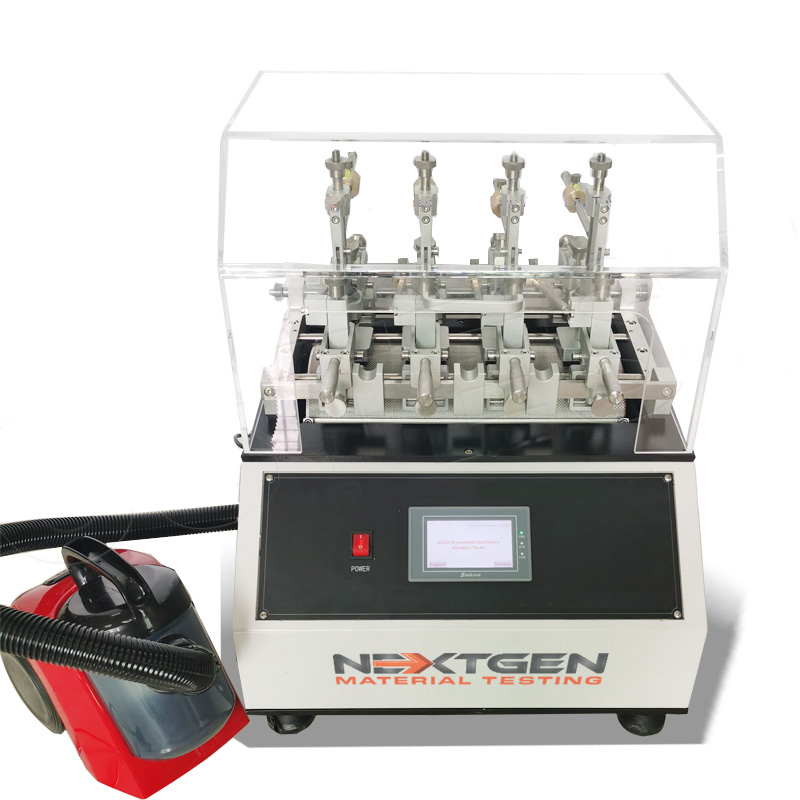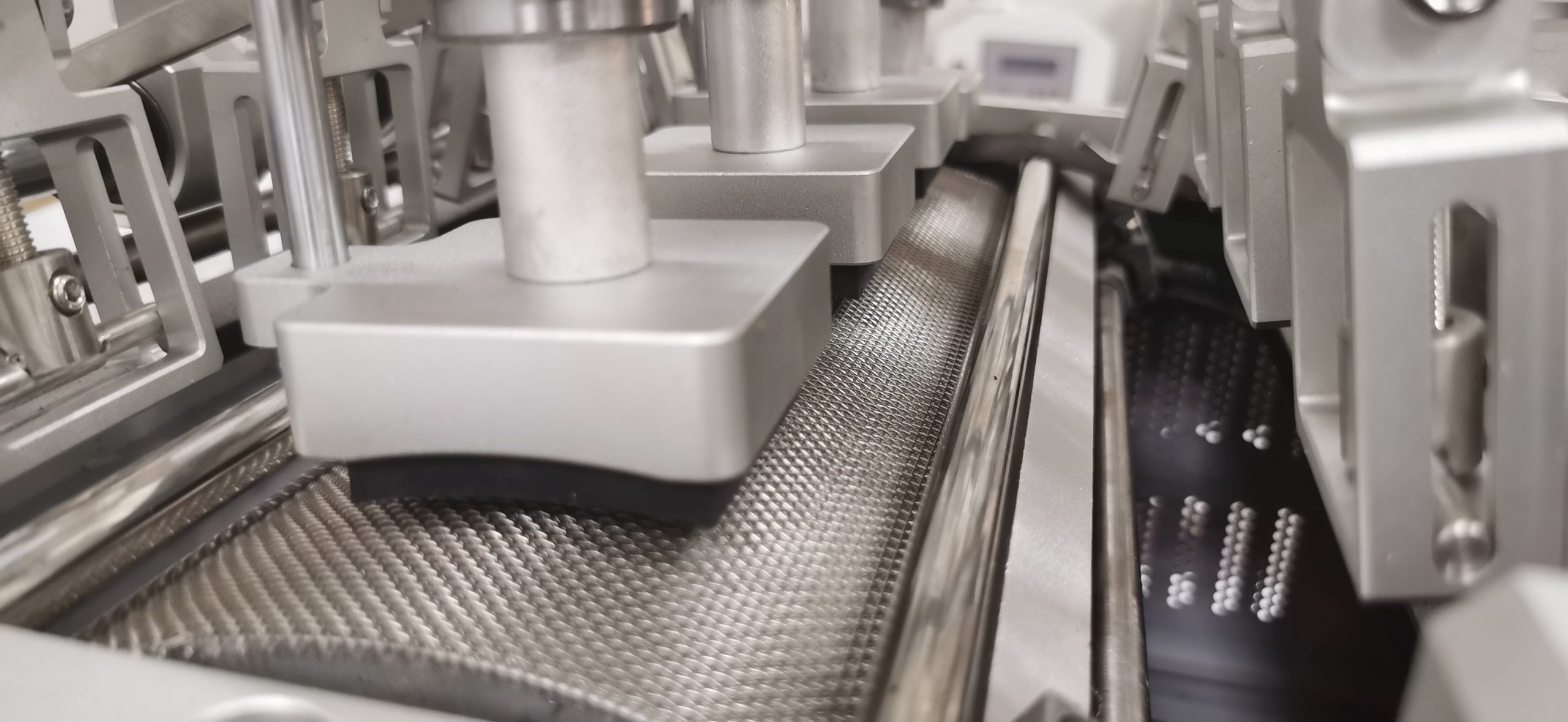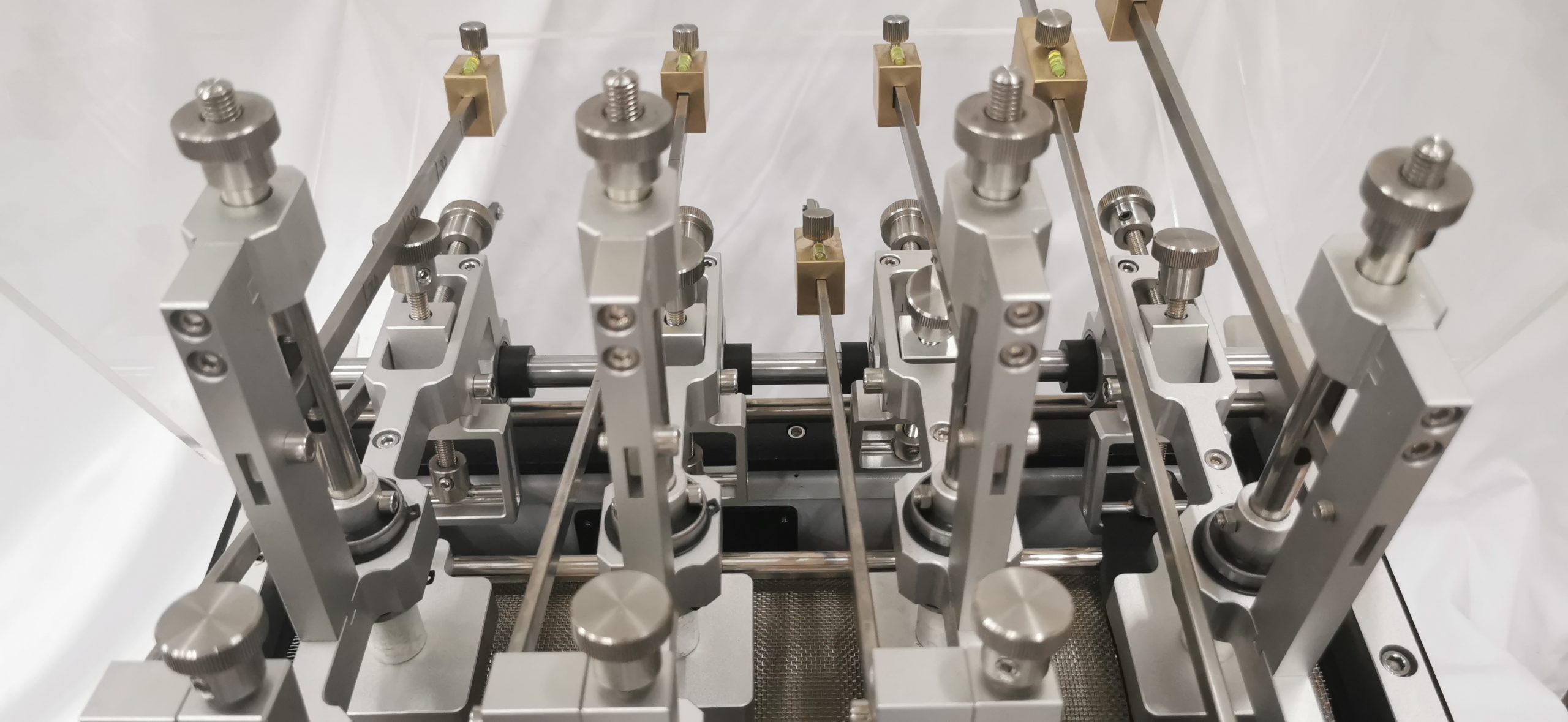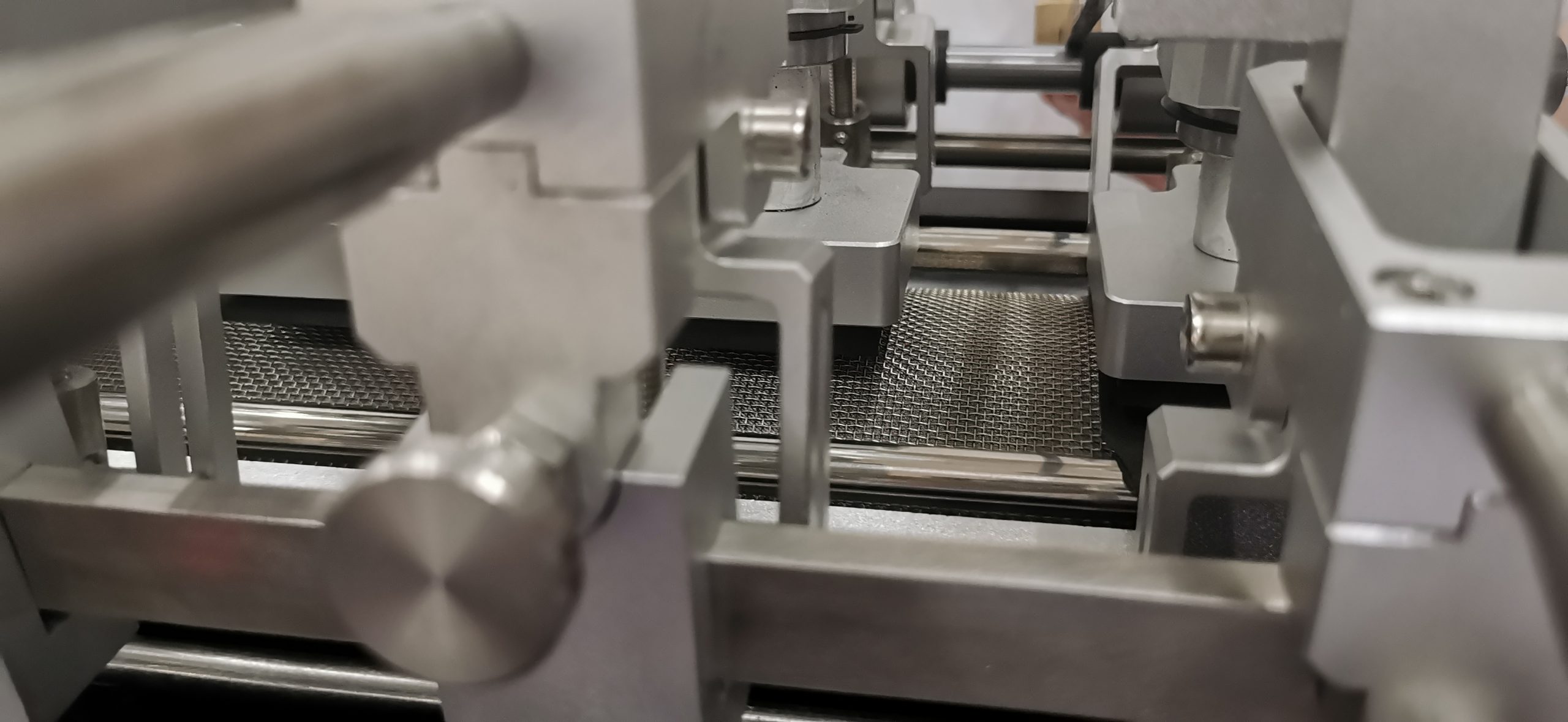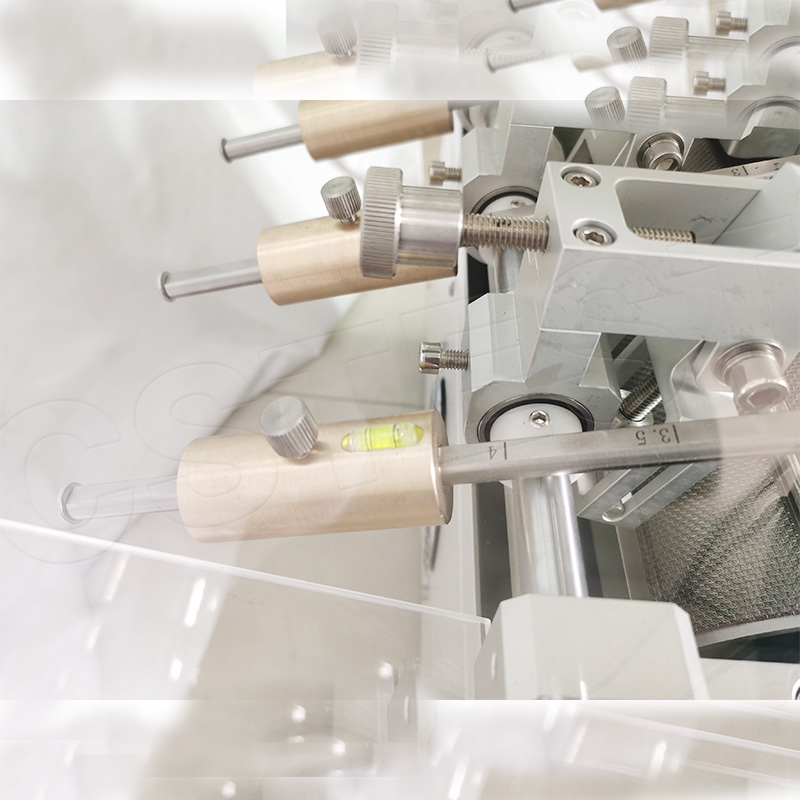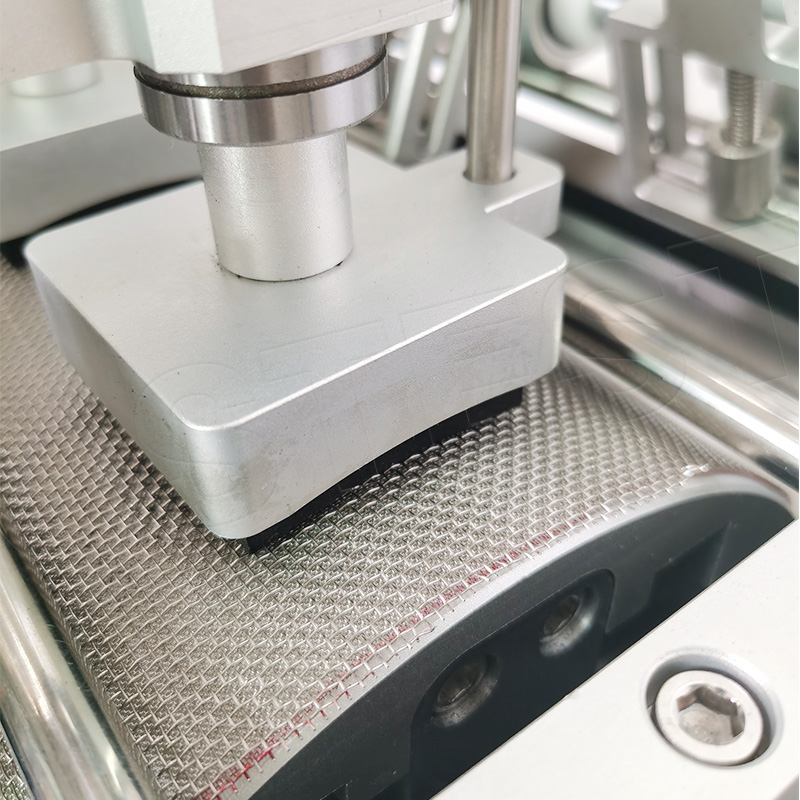Rubber Testing Equipment
Standards
ASTM D4157, ASTM D3597, ISO12402-7, SAE J1948, LP-463KB-06-01






NextGen's Certified Wyzenbeek Abrasion tester is designed to test the abrasion resistance of fabrics and metals. The abrasion of fabrics is tested when the specimen is pulled over the frame and rubbed against an abradant over a curved surface. The number of cycles, also known as double rubs, conducted on the specimen before the fabric shows visible wear is used to determine the rating of abrasion. This unit conforms ASTM and ISO methods as well as the LP-463KB-06-01 commonly referred to as the Chrysler, FCA and Stellantis method. Learn more about the Certified Wyzenbeek Abrasion Testing System and Testing Procedures.
Specifications
| Number of Test Chambers | 4 Groups |
| Abrasion Stroke | 76±2mm |
| Abrasion Table | Cambered Surface: Ø10cm, Length: 40cm |
| Friction Head | Bollom Rubber Pressure Head: 5 X 5cm Cambered Surface: Ø10cm |
| Sample Load | 13.4N adjustable |
| Adjustment Load Weight | 330lbs (150g) |
| Sample Tensile | 17.8N adjustable |
| Adjustable Tensile Load Weight | 340g |
| Sample Size | 7.3 x 24.5cm |
| Dimensions (W x D x H) | 22.45 x 23.22 x 28.34 " (57 x 59 x 72cm) |
| Weight | 265lbs (125kg) |
| Power | 110V/60Hz or 220V/50Hz |
| Standard Accessories | Main System, Rubber Blocks x4, Metal Nets x2, #10 Friction Cloth x5 and Operational Manual |
FAQs
Yes, the Wyzenbeek Abrasion Tester – GenWyze confirms its compliance with the ASTM D4157 standard. This standard signifies an internationally recognized method for assessing the abrasion resistance of textile fabrics using the Oscillatory Cylinder technique. The tester's adherence to this standard ensures that it can deliver accurate and consistent results when gauging the abrasion resistance of fabrics. This is of paramount importance for users in various fields such as the textile industry, academic research, quality assurance and control sectors, among others, who require reliable abrasion testing procedures that adhere to rigorous standards.
Moreover, the adherence to ASTM D4157 confirms the reliability of the Wyzenbeek Abrasion Tester – GenWyze in providing standardized and industry-accepted results. It reassures users about the machine's ability to meet and exceed the strictest testing standards, ensuring their materials' performance aligns with industry benchmarks. Furthermore, it indicates the commitment of NextGen, the manufacturer, to deliver high-quality, reliable, and industry-compliant products that enhance the accuracy and consistency of material testing.
Click here to learn more about the product or here to receive a personalized quote.
Yes, the Wyzenbeek Abrasion Tester – GenWyze does comply with the ASTM D3597 standard. This standard is a recognized test method that covers the evaluation of physical properties of fabrics. Compliance with this standard ensures that the Wyzenbeek Abrasion Tester – GenWyze accurately adheres to the protocols and guidelines outlined in the standard, thereby providing reliable and consistent results in the evaluation of the physical properties, including abrasion resistance, of textile fabrics.
This compliance showcases the machine's credibility and effectiveness in various industrial, research, and quality control settings that demand stringent adherence to internationally recognized testing standards. This implies that industries and researchers using the Wyzenbeek Abrasion Tester – GenWyze can trust that the materials tested will meet the industry and international benchmarks for fabric quality and durability. Furthermore, it attests to the commitment of the manufacturer, NextGen, to produce high-quality, reliable, and standard-compliant products, ultimately enhancing the precision and reproducibility of material testing procedures.
Click here to learn more about the product or here to receive a personalized quote.
Yes, the Wyzenbeek Abrasion Tester – GenWyze is stated to comply with the ISO 12402-7 standard. This standard is part of a series that provides the safety requirements and test methods for lifejackets and personal flotation devices. Specifically, ISO 12402-7 sets out the requirements for materials and components, including abrasion resistance.
The adherence of the Wyzenbeek Abrasion Tester – GenWyze to this standard denotes that it can reliably assess the abrasion resistance of materials used in lifejackets and similar products, as per the protocols laid out in ISO 12402-7. This is critical for manufacturers and testers in the marine safety industry, who need to ensure that their products can stand up to rigorous use and harsh conditions.
Furthermore, this compliance is a testament to NextGen's commitment to meet and exceed rigorous international standards, demonstrating their dedication to quality and reliability. Users of the Wyzenbeek Abrasion Tester – GenWyze can trust the accuracy and consistency of their test results, ensuring their products' performance aligns with stringent industry benchmarks.
Click here to learn more about the product or here to receive a personalized quote.
Yes, the Wyzenbeek Abrasion Tester – GenWyze is stated to comply with the SAE J1948 standard. This standard, established by the Society of Automotive Engineers (SAE), is commonly applied in the automotive industry to determine specific testing methods and practices.
The Wyzenbeek Abrasion Tester – GenWyze's adherence to the SAE J1948 standard indicates that it can accurately and reliably perform abrasion tests that conform to the protocols set by the automotive industry. This makes it particularly valuable for users involved in automotive textile testing, ensuring the materials used in vehicle interiors can withstand a significant amount of wear and tear.
NextGen's commitment to adhering to this standard underlines their dedication to quality and precision in material testing. Users of the Wyzenbeek Abrasion Tester – GenWyze can thus have confidence in the robustness of the machine and the reliability of their test results. This assures that tested materials align with industry-specific benchmarks, providing a solid foundation for quality control and product development within the automotive sector.
Click here to learn more about the product or here to receive a personalized quote.
Yes, the Wyzenbeek Abrasion Tester – GenWyze is reported to comply with the LP-463KB-06-01 standard.
The machine's adherence to the LP-463KB-06-01 standard is significant. It confirms that this abrasion tester aligns with rigorous, industry-specific testing methodologies, delivering reliable and accurate results. Professionals in the automotive industry, as well as those in quality control and materials testing, will find this compliance particularly beneficial. It ensures that their testing aligns with the specialized standards set by these automotive giants, providing valuable consistency and credibility to their work.
This compliance is also reflective of NextGen's commitment to broad industry relevance. By ensuring that the Wyzenbeek Abrasion Tester – GenWyze meets a variety of industry-specific testing standards, NextGen demonstrates its dedication to the production of high-quality, reliable, and versatile testing equipment. This in turn provides assurance to users about the quality of their test results and the overall dependability of the testing equipment they are using.
Click here to learn more about the product or here to receive a personalized quote.
The Wyzenbeek Abrasion Tester – GenWyze is specifically designed to assess the abrasion resistance of fabrics and metals. This means it can be utilized to test a wide range of textiles, including but not limited to those used in apparel, furniture upholstery, or automotive interiors. It helps determine the durability and expected lifespan of these materials under repetitive friction, an essential aspect of real-world usage.
In addition, the tester is also equipped to evaluate the abrasion resistance of various metals. This makes it an invaluable tool in industries like manufacturing, construction, or automotive where it's critical to understand how resistant a metal is to wear and tear when rubbed against other surfaces.
The Wyzenbeek Abrasion Tester – GenWyze's ability to test both fabrics and metals makes it an extremely versatile tool for many industries. By providing reliable and standardized results, it aids in maintaining the quality and durability of the tested materials, thus serving as an indispensable asset in materials testing and quality control processes.
Click here to learn more about the product or here to receive a personalized quote.
The Wyzenbeek Abrasion Tester – GenWyze tests the abrasion resistance of fabrics by applying a specific method that simulates real-world wear conditions. In this process, a fabric specimen is stretched and secured over a frame. The frame is designed such that the fabric is exposed over a curved surface.
Once the fabric is secured in place, an abradant - typically a standard piece of fabric or other material with known hardness - is rubbed against the specimen. The abradant moves back and forth over the curved surface of the fabric in a repetitive motion, simulating the wear that a fabric might experience in actual use.
The number of cycles, also known as double rubs, conducted on the specimen before the fabric shows visible signs of wear (such as a change in color, appearance, or the presence of holes) is used to determine the rating of abrasion resistance.
This method of testing provides valuable data about the fabric's durability and suitability for various applications, ensuring that materials used in production meet the necessary quality standards for abrasion resistance.
Click here to learn more about the product or here to receive a personalized quote.
The Wyzenbeek Abrasion Tester – GenWyze determines the abrasion rating of a fabric through a specific process involving repeated rubbing or "double rubs." The test is performed by pulling the fabric specimen over a frame and rubbing it against an abradant over a curved surface.
During the test, the number of cycles, or "double rubs," is recorded. A cycle consists of two movements of the abradant against the fabric, one forward and one backward. The test continues until the fabric shows visible signs of wear, such as pilling, thinning, holes, or a noticeable change in appearance or color.
The number of double rubs required to reach this point of visible wear is used to determine the fabric's abrasion rating. A higher number of cycles indicates greater abrasion resistance, signifying that the fabric can withstand more wear and tear. Conversely, a lower number indicates that the fabric may wear out more quickly.
This method of determining abrasion rating provides an objective and standardized measure of a fabric's durability, allowing manufacturers, quality control professionals, and other users to assess the suitability of a fabric for various applications, ensuring that it meets the required performance and quality standards.
Click here to learn more about the product or here to receive a personalized quote.
The Wyzenbeek Abrasion Tester – GenWyze is designed with four distinct test chambers, organized into groups. This multi-chamber design significantly enhances the machine's testing capacity, allowing for simultaneous testing of multiple fabric or metal samples.
Having multiple test chambers offers several key advantages. Primarily, it increases the efficiency of the testing process. Instead of having to test individual samples one after the other, users can test four different samples concurrently. This saves valuable time, particularly in industrial or research settings where high volumes of samples need to be tested.
Secondly, this feature allows for greater versatility in testing. Different samples can be tested under the same or varying conditions at the same time, facilitating comparisons and analyses. It also allows for redundancy and replication in testing, contributing to the reliability and validity of the results.
In essence, the incorporation of four test chambers in the Wyzenbeek Abrasion Tester – GenWyze design considerably enhances its capacity, flexibility, and productivity, thus making it an invaluable tool for all sectors requiring comprehensive and efficient abrasion testing.
Click here to learn more about the product or here to receive a personalized quote.
The abrasion stroke length of the Wyzenbeek Abrasion Tester – GenWyze is 76mm, with a tolerance of plus or minus 2mm. This measurement refers to the length that the abradant travels in one direction during a single abrasion cycle.
This standard stroke length allows the tester to accurately simulate the type of wear and tear that materials might experience in real-world conditions. By maintaining a consistent stroke length, the Wyzenbeek Abrasion Tester – GenWyze ensures that all samples are tested under the same conditions, which allows for fair comparisons to be made between different materials.
It's important to note that the precision of the stroke length, with a variance of only ±2mm, speaks to the machine's high level of accuracy. This accuracy contributes to the reliability of the test results, providing confidence to users in the materials' abrasion resistance ratings determined by the tester.
Click here to learn more about the product or here to receive a personalized quote.
The abrasion table of the Wyzenbeek Abrasion Tester – GenWyze features a cambered, or curved, surface with a diameter (Ø) of 10cm and a length of 40cm. This curved design plays a significant role in the testing process.
The cambered surface is designed to mimic real-world conditions more closely, simulating the type of wear and tear fabrics and metals might experience in actual use. It helps to create a more realistic rubbing action, improving the accuracy of the test results.
The specific dimensions of the table are also significant. The diameter of the cambered surface (10cm) and the length (40cm) provide a standardized testing area for all materials. This consistency ensures that all samples are tested under the same conditions, enhancing the reliability of the results and allowing for fair comparisons between different materials.
In essence, the specifications of the abrasion table are a key part of the Wyzenbeek Abrasion Tester – GenWyze's design, ensuring accurate, consistent, and reliable abrasion testing.
Click here to learn more about the product or here to receive a personalized quote.
The friction head of the Wyzenbeek Abrasion Tester – GenWyze has two components: a Bollom Rubber Pressure Head with dimensions of 5cm by 5cm, and a cambered surface with a diameter of 10cm.
The Bollom Rubber Pressure Head, sized at 5cm by 5cm, applies a consistent pressure on the sample during the testing process. It replicates the force that would typically be exerted in real-world situations, such as sitting on a piece of furniture or the constant friction experienced by car seats.
The cambered surface of the friction head, with a diameter of 10cm, moves back and forth against the sample to mimic the natural wear and tear a material might experience in its everyday usage.
These specific dimensions and characteristics of the friction head are designed to provide consistent and repeatable testing conditions, thereby ensuring the reliability and validity of the abrasion resistance data obtained from the Wyzenbeek Abrasion Tester – GenWyze.
Click here to learn more about the product or here to receive a personalized quote.
The Wyzenbeek Abrasion Tester – GenWyze has an adjustable sample load of 13.4 Newtons (N). This refers to the amount of force that is applied to the fabric or metal sample during the abrasion testing process.
The adjustability of the sample load is a significant feature. It allows the user to modify the force exerted on the material according to specific requirements or standards, offering a high level of versatility and adaptability. For instance, some materials may require a higher load to accurately simulate their real-world usage conditions, while others may require a lesser load.
The ability to control and alter the sample load as per testing needs can provide a more accurate representation of a material's abrasion resistance, thereby enhancing the overall effectiveness and reliability of the Wyzenbeek Abrasion Tester – GenWyze. The 13.4N load is just a standard point of reference, and the actual load applied can be modified to suit different testing scenarios and requirements.
Click here to learn more about the product or here to receive a personalized quote.
There appears to be a discrepancy in the unit conversion in the information you provided. Typically, 330lbs converts to approximately 149,685g, not 150g. It would be helpful to have this clarified. However, taking each measurement as it is, the Wyzenbeek Abrasion Tester – GenWyze has an adjustable load weight of either 330lbs or 150g.
The adjustable load weight allows the user to change the pressure applied to the material during the testing process, to simulate different real-world usage conditions. This level of adjustability provides the flexibility to test a wide range of materials with varying degrees of toughness and resistance to abrasion.
This feature enhances the versatility of the Wyzenbeek Abrasion Tester – GenWyze, enabling it to accommodate a diverse range of testing requirements. Whether it's a delicate fabric that requires a lighter touch or a tough metal that needs more force, the adjustable load weight ensures that the machine can provide accurate and reliable results across different materials and conditions.
Click here to learn more about the product or here to receive a personalized quote.
The Wyzenbeek Abrasion Tester – GenWyze has an adjustable sample tensile specification of 17.8 Newtons (N). This value refers to the tensile force, or pulling force, that can be applied to the sample during the abrasion testing process.
Tensile force is particularly significant in abrasion testing as it simulates the stresses that materials undergo during normal use. For instance, fabrics used in furniture or clothing often experience both abrasion and tensile forces.
The adjustability of the sample tensile force in the Wyzenbeek Abrasion Tester – GenWyze allows for a more comprehensive and realistic testing environment. By adjusting the tensile force to mimic different real-world conditions, the machine can provide a more accurate measure of a material's durability and abrasion resistance.
Whether you're testing a delicate fabric that needs a gentle pull or a sturdy material that can withstand a stronger force, the adjustable tensile specification ensures that the Wyzenbeek Abrasion Tester – GenWyze delivers reliable, realistic, and applicable results.
Click here to learn more about the product or here to receive a personalized quote.
The Wyzenbeek Abrasion Tester – GenWyze has an adjustable tensile load weight of 340 grams. This refers to the maximum amount of pulling force, or tension, that can be applied to a fabric or metal sample during the testing process.
Having an adjustable tensile load weight is a significant feature as it allows the machine to simulate different levels of stress that a material might experience in real-world conditions. For example, the tensile load can be adjusted to replicate the stress experienced by a seat cover when someone sits on it, or the pressure exerted on a garment when it is worn.
By providing this adjustability, the Wyzenbeek Abrasion Tester – GenWyze offers a greater range of testing parameters, making it a versatile tool capable of evaluating a wide array of materials under varying conditions. This adaptability helps ensure more accurate and relevant testing results, enhancing the overall effectiveness of the abrasion resistance tests.
Click here to learn more about the product or here to receive a personalized quote.
The Wyzenbeek Abrasion Tester – GenWyze requires a sample size of 7.3 x 24.5 centimeters. This indicates the dimensions of the fabric or metal sample that the machine can accommodate for abrasion testing.
The specific sample size requirement ensures consistency across all tests conducted with this machine. By using a standardized size, all materials are tested under the same conditions, which allows for fair comparisons of abrasion resistance between different materials.
Moreover, the sample size of 7.3 x 24.5 centimeters is also large enough to provide a comprehensive view of how a material will perform under wear-and-tear conditions, thereby enhancing the reliability and applicability of the test results.
Whether you are testing fabric for furniture, clothing, or metal for automotive parts, you can be assured that the Wyzenbeek Abrasion Tester – GenWyze can provide reliable, repeatable, and accurate abrasion resistance data using its specified sample size.
Click here to learn more about the product or here to receive a personalized quote.
The Wyzenbeek Abrasion Tester – GenWyze has dimensions of 22.45 inches in width (W), 23.22 inches in depth (D), and 28.34 inches in height (H). In metric units, this translates to approximately 57 cm x 59 cm x 72 cm.
These dimensions provide information about the physical space the machine occupies, which is vital when planning for laboratory or workspace layouts. A clear understanding of the equipment's size helps ensure that there is ample space not just for the machine itself, but also for safe and efficient operation, maintenance, and potential accessory storage.
Despite its robust testing capabilities, the Wyzenbeek Abrasion Tester – GenWyze has a relatively compact footprint. This makes it suitable for various settings, including smaller laboratories or quality control departments where space might be at a premium. Its design enables comprehensive abrasion testing while taking into account the practicalities of a working environment.
Click here to learn more about the product or here to receive a personalized quote.
The Wyzenbeek Abrasion Tester – GenWyze has a weight of 265 pounds, or roughly 125 kilograms. This weight characteristic gives an idea of the solidity of the device, as well as some practical implications related to its handling and installation.
The machine's significant weight suggests a solid, robust construction, a feature that is often associated with the durability and reliability of laboratory equipment. This robustness is essential for a machine like the Wyzenbeek Abrasion Tester, which undergoes continuous and repetitive use during the process of abrasion testing.
In practical terms, the weight of the machine means that it will likely require a strong, stable surface for placement, and may require more than one person or specific equipment for safe handling and installation. This consideration is crucial when planning the machine's installation and subsequent potential relocation.
While the machine's weight does imply a certain level of immobility, it is a testament to its ruggedness and reliability, designed to consistently deliver accurate results in the demanding environment of material testing over an extended period of use.
Click here to learn more about the product or here to receive a personalized quote.
The Wyzenbeek Abrasion Tester – GenWyze operates on either a 110V/60Hz or 220V/50Hz power supply. This dual voltage capability allows the machine to be used in various geographical locations around the world, which have different standard electrical outputs.
In practical terms, the 110V/60Hz specification is common in countries such as the United States and Canada, while the 220V/50Hz specification is standard in many European countries and other parts of the world.
The flexibility in power requirements makes the Wyzenbeek Abrasion Tester – GenWyze a versatile tool for international operations, reducing the need for power converters or transformers. This ensures that no matter where your testing facility is located, this abrasion tester can function efficiently and reliably.
Understanding the machine's power requirements is crucial for safe and effective operation. It aids in ensuring that the laboratory or testing facility can provide the necessary power supply, preventing potential electrical issues, ensuring user safety, and maintaining the machine's performance and lifespan.
Click here to learn more about the product or here to receive a personalized quote.
The Wyzenbeek Abrasion Tester – GenWyze comes with several standard accessories that enhance its functionality and ease of use. These accessories include the main system, four rubber blocks, two metal nets, five pieces of #10 friction cloth, and an operational manual.
The main system is the core component of the tester, carrying out the abrasion tests. The rubber blocks and metal nets are essential for testing, representing different kinds of abradants that a fabric or metal might encounter in its usage lifecycle. The #10 friction cloth is a specific type of fabric used in the testing process.
The operational manual is a crucial component, providing detailed instructions on how to use the tester, conduct the tests, and interpret the results. It also includes safety guidelines and maintenance procedures to ensure the longevity and reliability of the machine.
These standard accessories are intended to equip users with everything they need to conduct abrasion tests effectively, making the Wyzenbeek Abrasion Tester – GenWyze a comprehensive solution for evaluating the abrasion resistance of various materials.
Click here to learn more about the product or here to receive a personalized quote.
The Wyzenbeek Abrasion Tester – GenWyze offers robust user support, including trusted after-sales technical support and lifetime product support advantage.
The after-sales technical support ensures that users can get help with any issues they might face when using the machine, from troubleshooting technical problems to understanding how to best utilize the machine's capabilities.
Lifetime product support means that this assistance isn't just limited to the initial period after purchase but extends throughout the entire lifespan of the machine. This is a significant advantage for users as it ensures that they can continue to derive maximum value from their investment in the long run.
In addition, having readily available support can increase user confidence in the product, as they know they can rely on expert assistance when needed. This comprehensive user support underscores NextGen's commitment to customer satisfaction and the reliable performance of the Wyzenbeek Abrasion Tester – GenWyze.
Click here to learn more about the product or here to receive a personalized quote.
The Wyzenbeek Abrasion Tester – GenWyze features an adjustable sample load of 13.4N and an adjustable tensile of 17.8N. These features are critical to its versatility and adaptability in testing different materials under varying conditions.
An adjustable sample load means that the force applied to the test specimen can be varied, allowing the user to simulate different conditions that a material might be subjected to in real-world use. It ensures that the tester can accurately evaluate the material's performance under diverse load conditions.
Similarly, the adjustable tensile strength feature allows the tester to simulate different levels of stretching force that a material might experience. This is particularly important when testing materials that are designed to be flexible or to withstand tensile stress.
In practical terms, these adjustable features increase the range of materials and conditions that the Wyzenbeek Abrasion Tester – GenWyze can accurately test, making it a more versatile tool for assessing abrasion resistance. It means that users can customize their testing parameters to best suit the characteristics of the materials and the specific information they wish to glean from the tests.
Click here to learn more about the product or here to receive a personalized quote.
The Wyzenbeek Abrasion Tester – GenWyze boasts several features that contribute to its user-friendliness. One of its most important user-friendly attributes is its ability to be easily operated and adjusted.
For instance, it provides adjustable sample load and tensile parameters, which enable users to tailor their testing parameters to the specific material or condition they are investigating. This flexibility makes it easier for users to achieve the desired test conditions without extensive, complex machine operation.
Additionally, the device comes with a comprehensive operational manual, which guides users through the setup and use of the device. This resource is particularly useful for new users or those unfamiliar with this type of testing equipment, making it easier for them to understand and effectively use the machine.
The Wyzenbeek Abrasion Tester – GenWyze also provides a standard accessories pack, including essential components like rubber blocks, metal nets, and friction cloth. Having these accessories included with the device saves users time and effort in sourcing compatible accessories separately.
Click here to learn more about the product or here to receive a personalized quote.
The Wyzenbeek Abrasion Tester – GenWyze's certification from the National Institute of Standards and Technology (NIST) and its compliance with industry standards like ASTM, ISO, and LP-463KB-06-01 are significant indicators of its reliability and accuracy.
NIST certification means that the machine's design, build, and operational parameters have been evaluated and meet the strict criteria set by this respected organization. This certification underscores the machine's capability to deliver accurate and repeatable results, making it a trusted tool for critical abrasion testing tasks.
Compliance with industry standards such as ASTM and ISO methods demonstrates the machine's ability to perform tests that are globally recognized and accepted. This means that the test results produced by the Wyzenbeek Abrasion Tester – GenWyze can be used and understood broadly across industries and geographical regions.
Click here to learn more about the product or here to receive a personalized quote.
Related Products
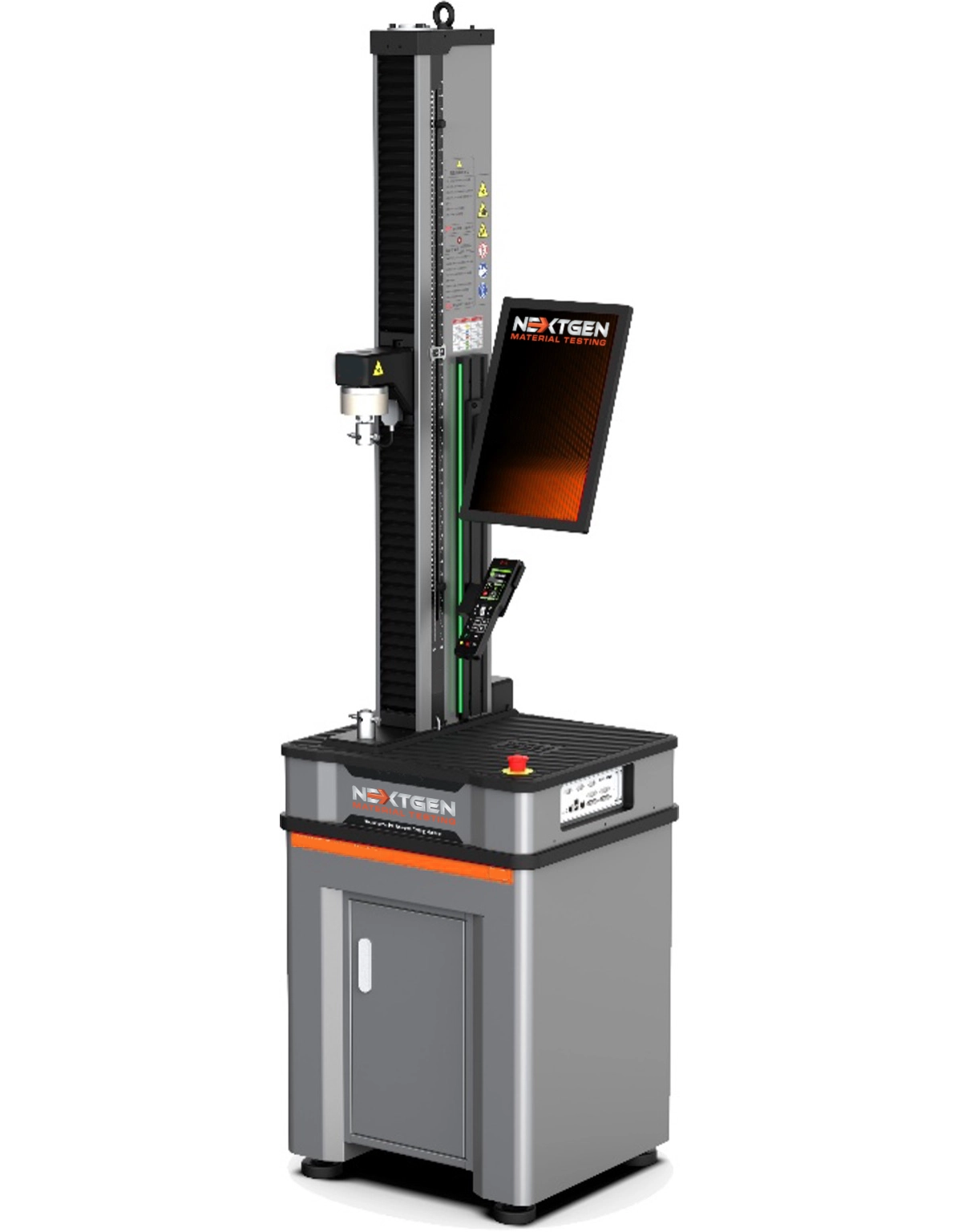
NG-EML Series A – Single Column Bench Top Universal Testing Machine (50 N – 5 kN)
The NG-EML Series A – Single Column Bench Top UTM (50 N–5 kN) is a precision electromechanical system designed for tension, compression, and flexural testing of low-force specimens. Featuring GenTest™ software, a high-speed servo drive, Class 0.5 accuracy, and USB/Ethernet control, this compact tabletop unit supports ASTM, ISO, and EN standards. Ideal for testing plastics, rubber, foams, films, composites, and thin metals.
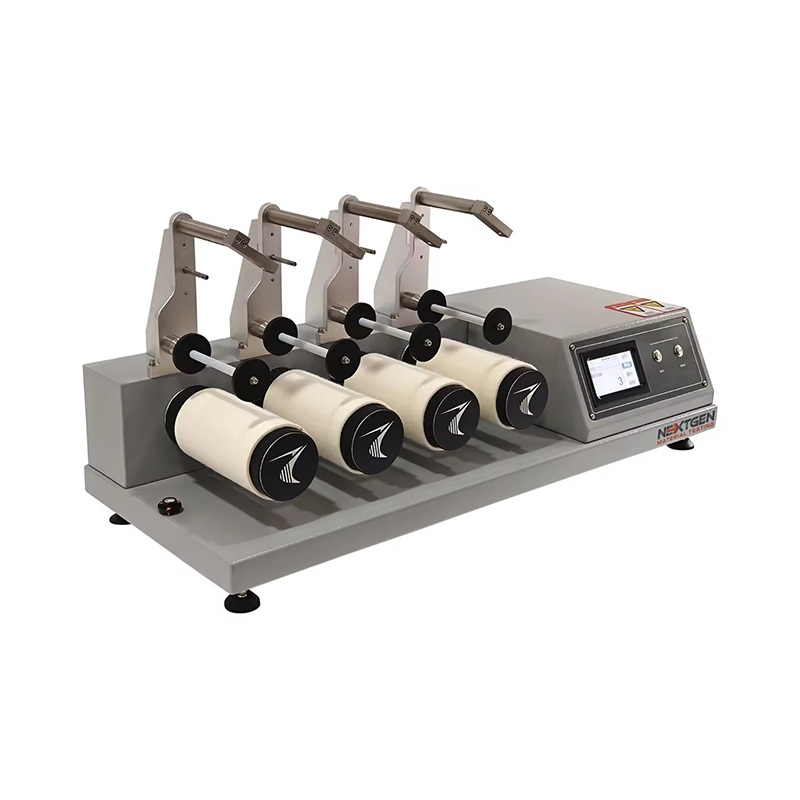
ICI / Mace Snag Tester
Discover the Fabric Textile ICI / Mace Snag Tester, a reliable tool for assessing fabric snagging under normal wear conditions.
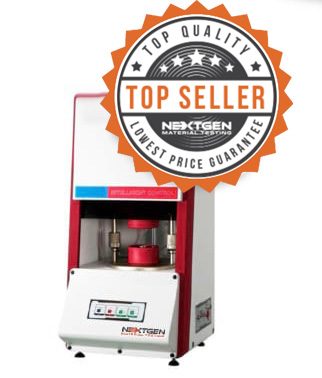
Moving Die Rheometer (MDR)
Introducing the NG-MDR Moving Die Rheometer, your solution for accurately assessing the curing and processing characteristics of vulcanized rubber compounds. Designed for precision, this state-of-the-art rheometer captures the characteristic curve and parameters of rubber vulcanization by measuring the torque applied to the oscillating die.
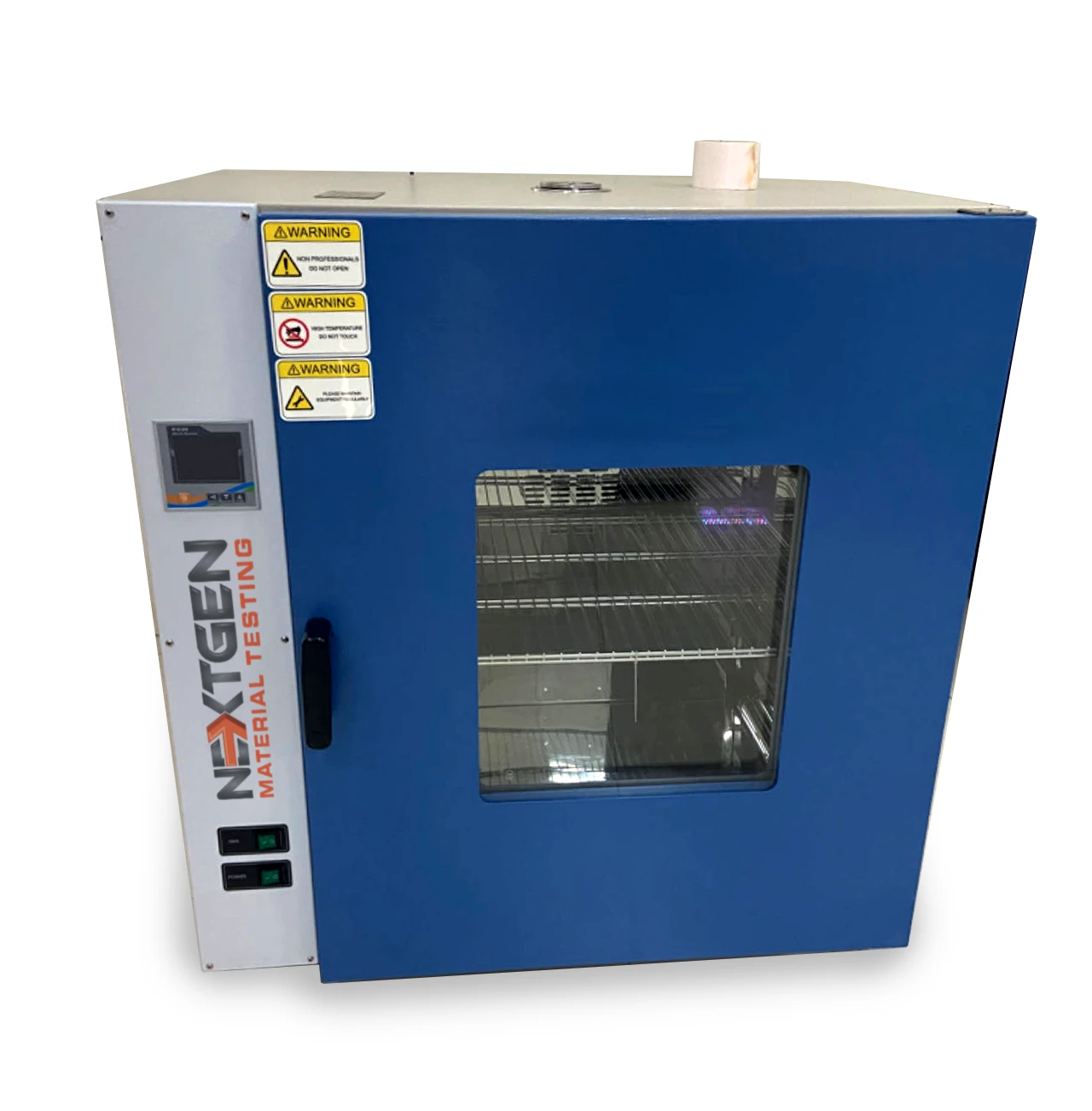
Aging Oven – High-Temperature Chamber – NG-AGOV-ADV
The NG-AGOV-ADV Aging Oven is designed for high-temperature testing of rubber, plastics, and insulating materials. It features programmable PID control, uniform airflow, and forced convection for stable and repeatable aging cycles. This system supports global testing standards including ISO 188, ASTM D573, and IEC 60216-4-1. With its durable stainless-steel chamber and user-friendly interface, it’s ideal for R&D, quality control, and certification labs.
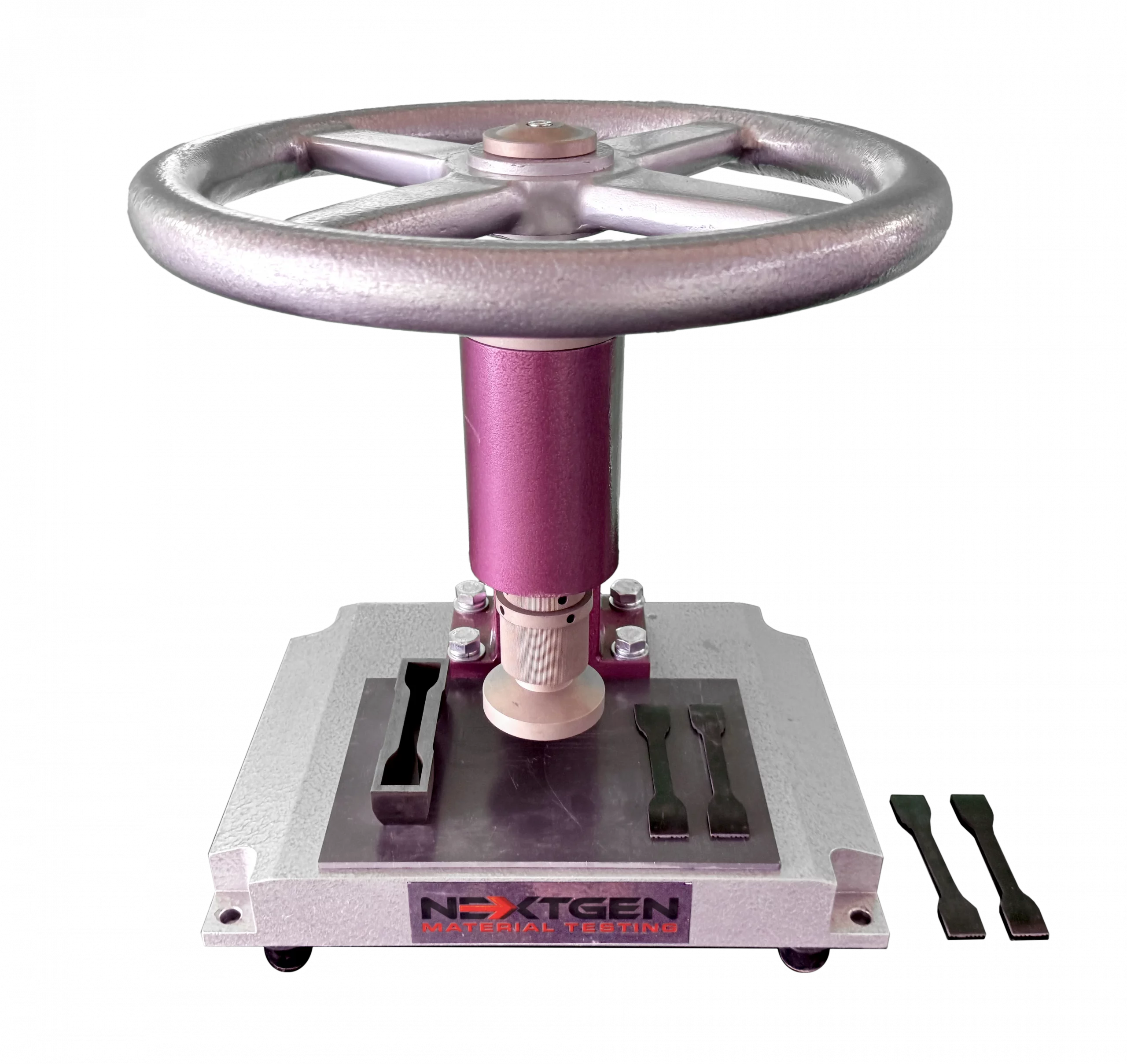
NG-T-Press M Series - Manual Cutting Press System for Rubber Tensile Specimens
Our newest manual cutting press system is suitable for laboratories to create specimens from rubber, tape, and special materials.
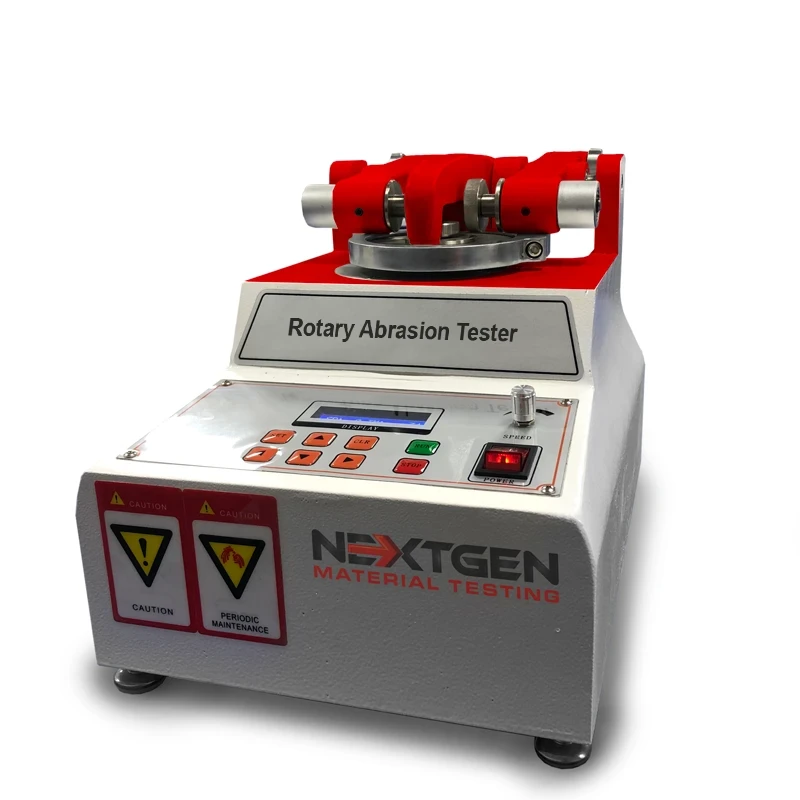
Rotary Abrasion Tester Single & Dual Wheel
GenRotary used evaluate abrasion resistance. It can conduct tests on a wide range of materials such as: cloth, paper, paint, plywood, leather, tile, glass, rubber etc. It tests the specimen by rotating it while in contact with the grinding wheel and applying the required pressure. The Joss of weight reflects on the change in weight of the specimen. The unit also has an intelligent power failure recovery function.
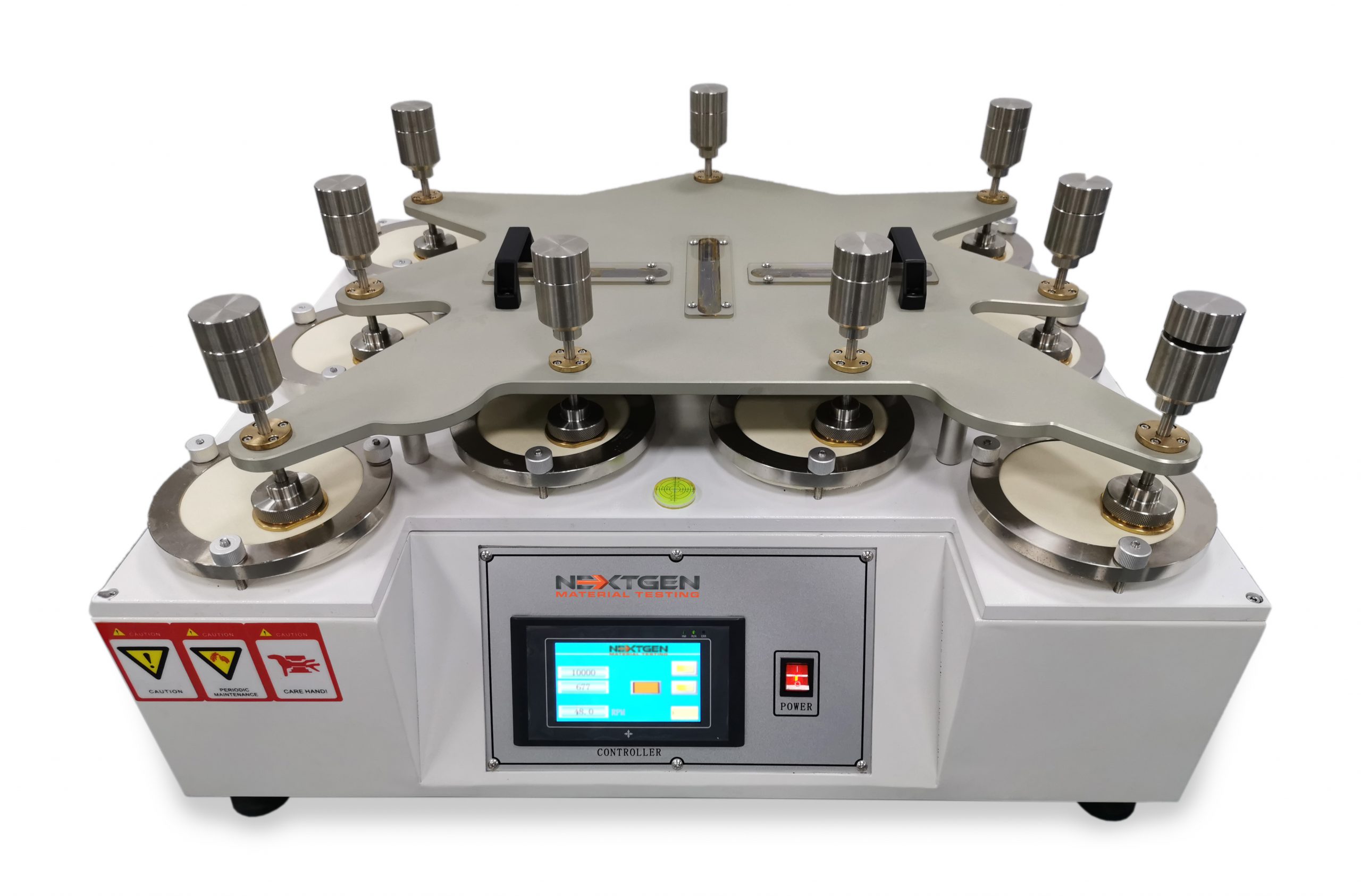
9-Station Martindale Abrasion Tester
The GenDale - Martindale Abrasion Tester is mainly used to test shoe fabric, shoe lining, and many other types of shoe related materials.
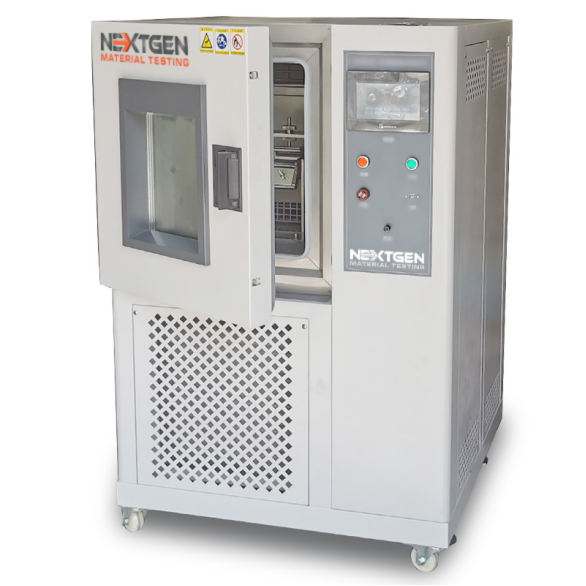
GenRoss-CH - Ross Flex Tester with Low Temperature Chamber
GenRoss-CH is an advanced Ross Flex Tester designed for assessing the cold resistance of materials in low temperature environments.

Linear Abrasion Tester
NextGen's linear abrasion meters evaluate the abrasion and scratch resistance of products, along with color transmission.
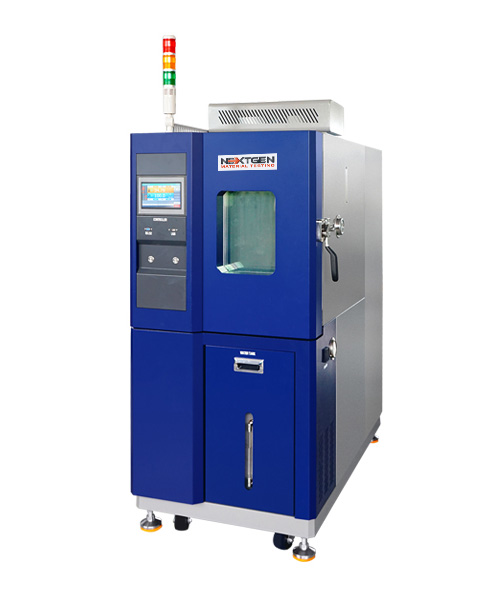
NextGen Environmental Chambers NG-EC 100,150,225,408,1000
The temperature and humidity NextGen Environmental Chambers features a sturdy cabinet made of cold-rolled steel and stainless steel.
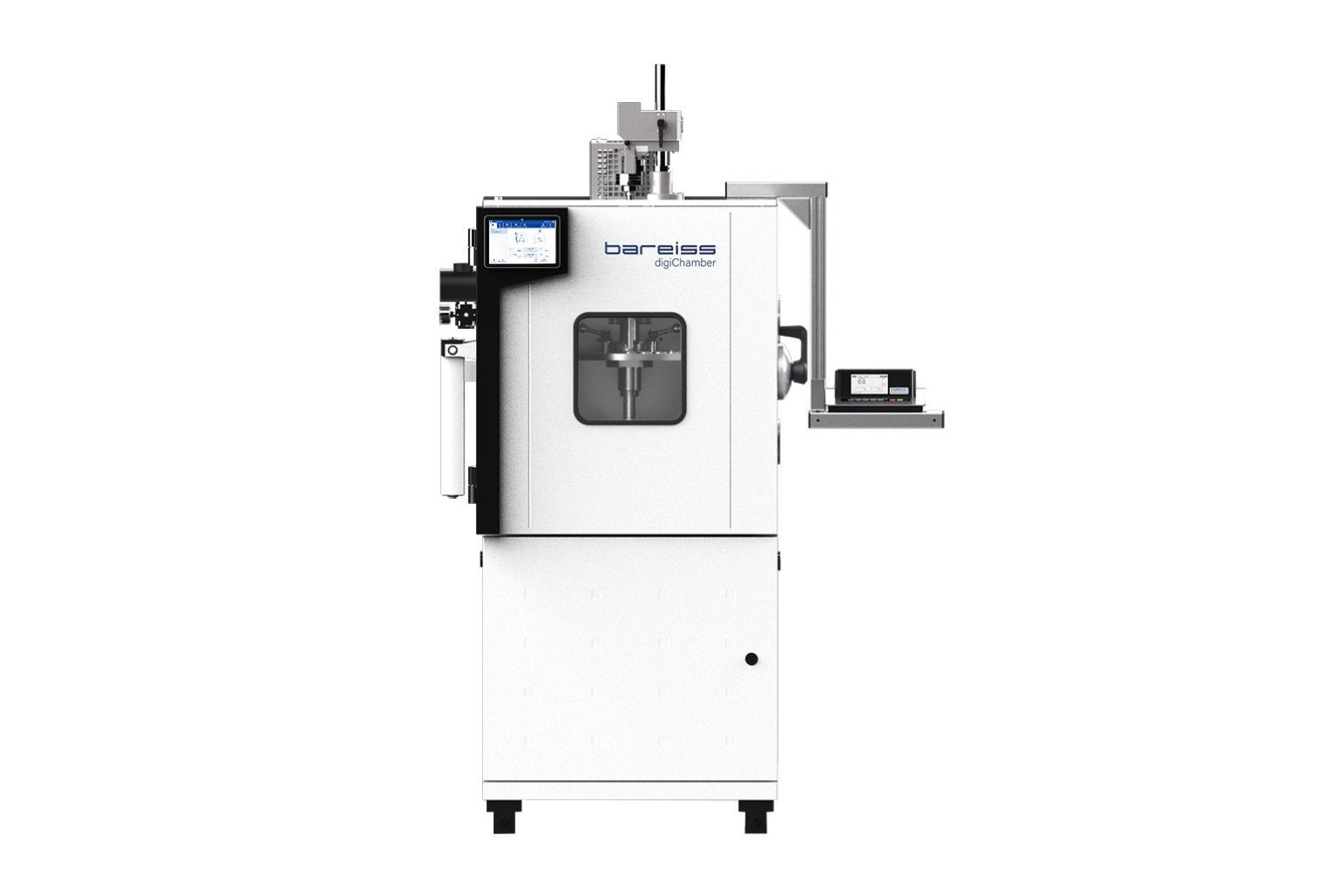
digiChamber - Temperature Controlled Hardness Testing
Discover digiChamber from NextGen Material Testing, the advanced temperature-controlled hardness tester developed by Bareiss.
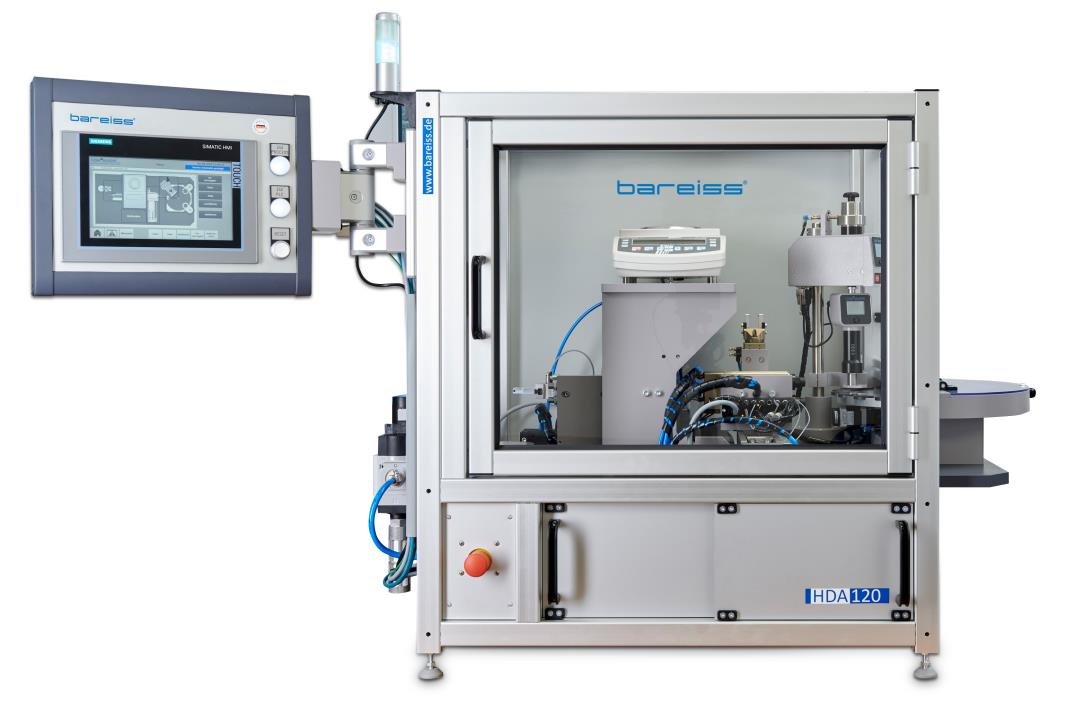
HDA 120 - Hardness and Density Automation Test System
The HDA 120 test system is a versatile solution for semi-automatic detection of sample hardness and density.
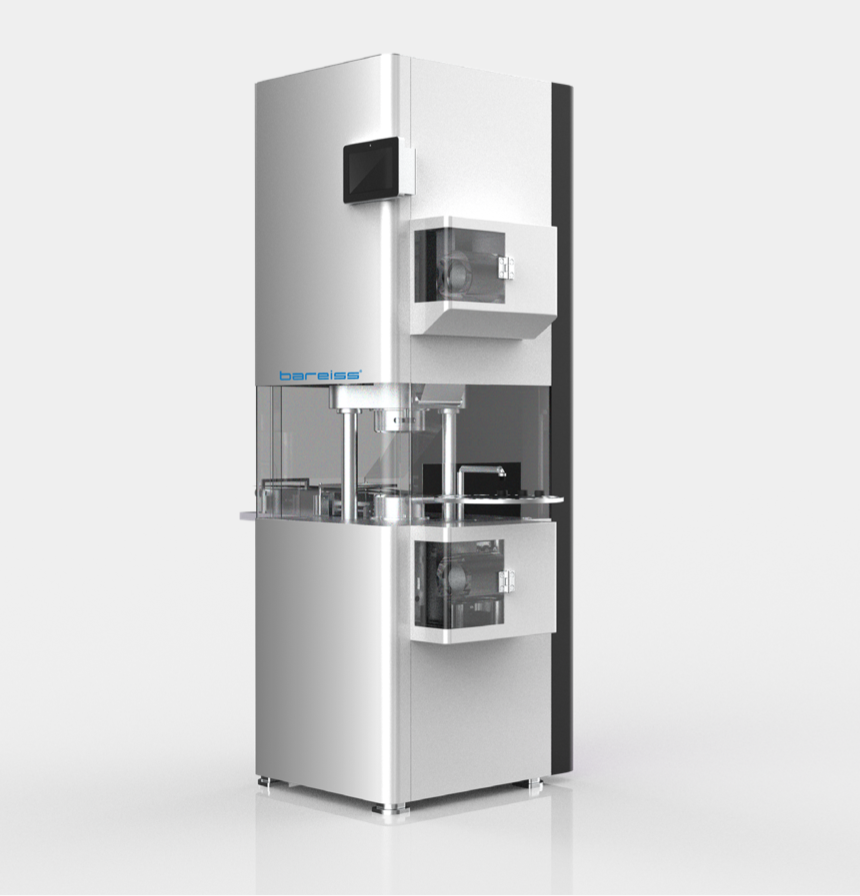
RPA Ultra - Advanced Rubber Process Analyzer Rheometer
RPA Ultra is an advanced rubber process analyzer rheometer that measures the dynamic and static characteristics of raw rubber compounds
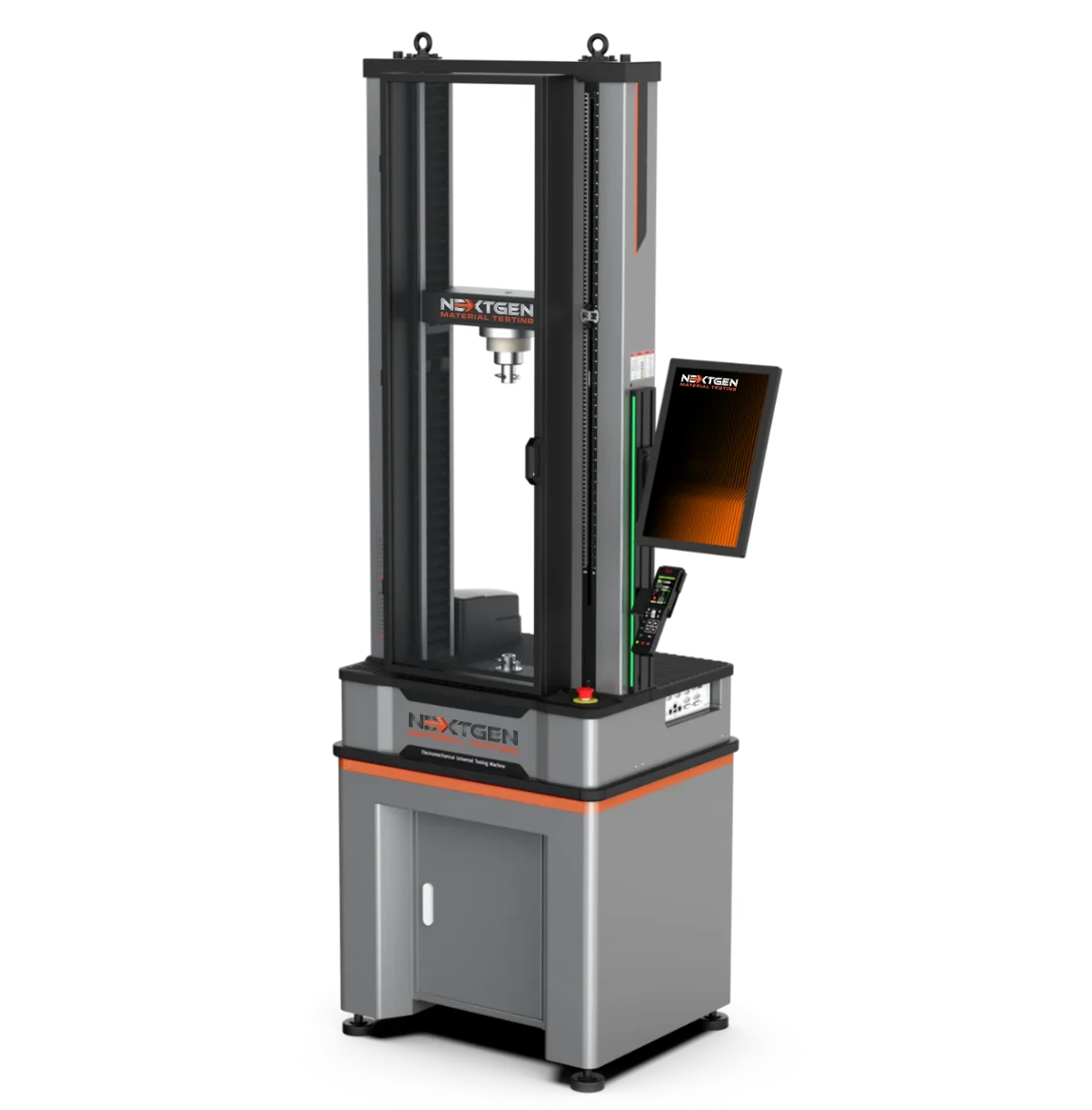
NG-EML Series B – Dual Column Bench Top Universal Testing Machine (100 N – 10 kN)
The NG-EML Series B is a high-precision dual-column benchtop universal testing machine engineered for tensile, compression, and flexural testing in the 0.1 kN to 10 kN range. It features Class 0.5 accuracy, a rigid FEM-optimized frame, and a direct-drive servo system with advanced closed-loop control, making it ideal for testing rubber, plastics, metals, composites, and high-performance polymers in both R&D and quality assurance settings.
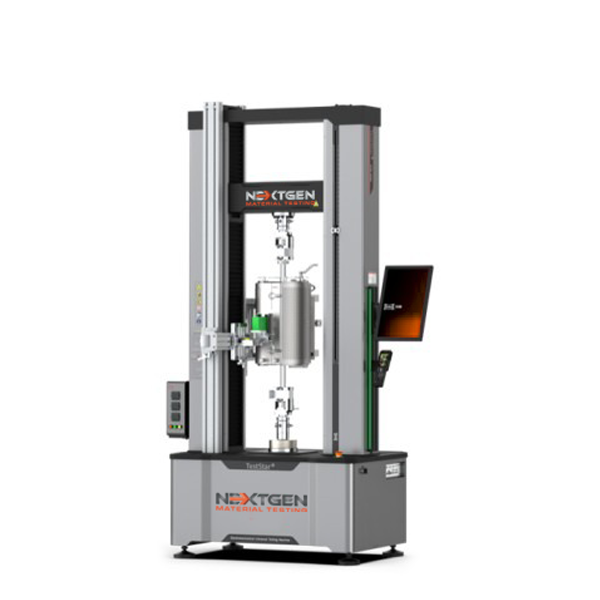
NG-EML Series C – Dual Column Bench Top and Floor Standing Universal Testing Machine (5 kN – 50 kN)
The NG-EML Series C is a precision-engineered dual-column universal testing machine for tension, compression, and flexural testing of metals, composites, rubbers, and polymers. Available in both bench-top and floor-standing formats, with force capacities from 5 kN to 50 kN and Class 0.5 accuracy.
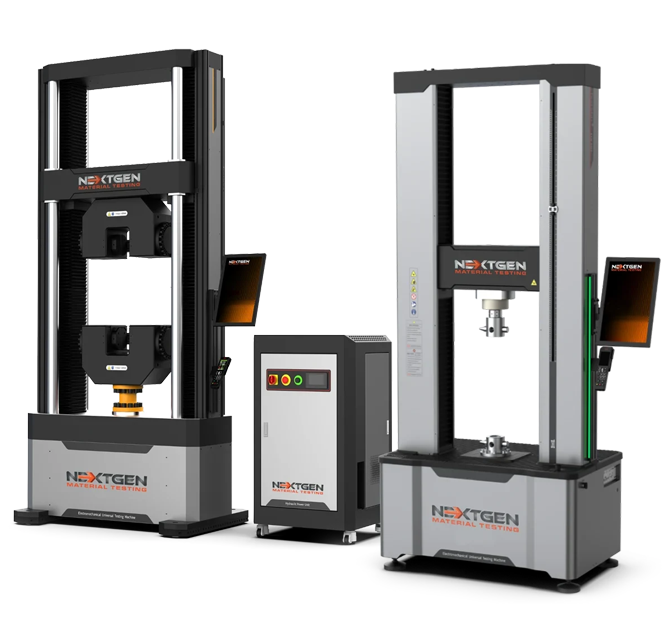
NG-EML Series D – Floor Standing Universal Testing Machine (50 kN – 1000 kN)
The NG-EML Series D – Floor Standing Universal Testing Machine (50 kN–1000 kN) is a dual-column system for tensile, compression, flexural, shear, and cyclic testing of high-strength metals, composites, polymers, and advanced materials. Available in single-space and dual-space configurations, it meets ASTM E8, ISO 6892-1, ISO 527, and GB/T 228 standards. With closed-loop control, 1200 Hz sampling, ultra-low speeds (0.00005 mm/min), and waveform generation, it is ideal for aerospace, automotive, construction, and research labs.
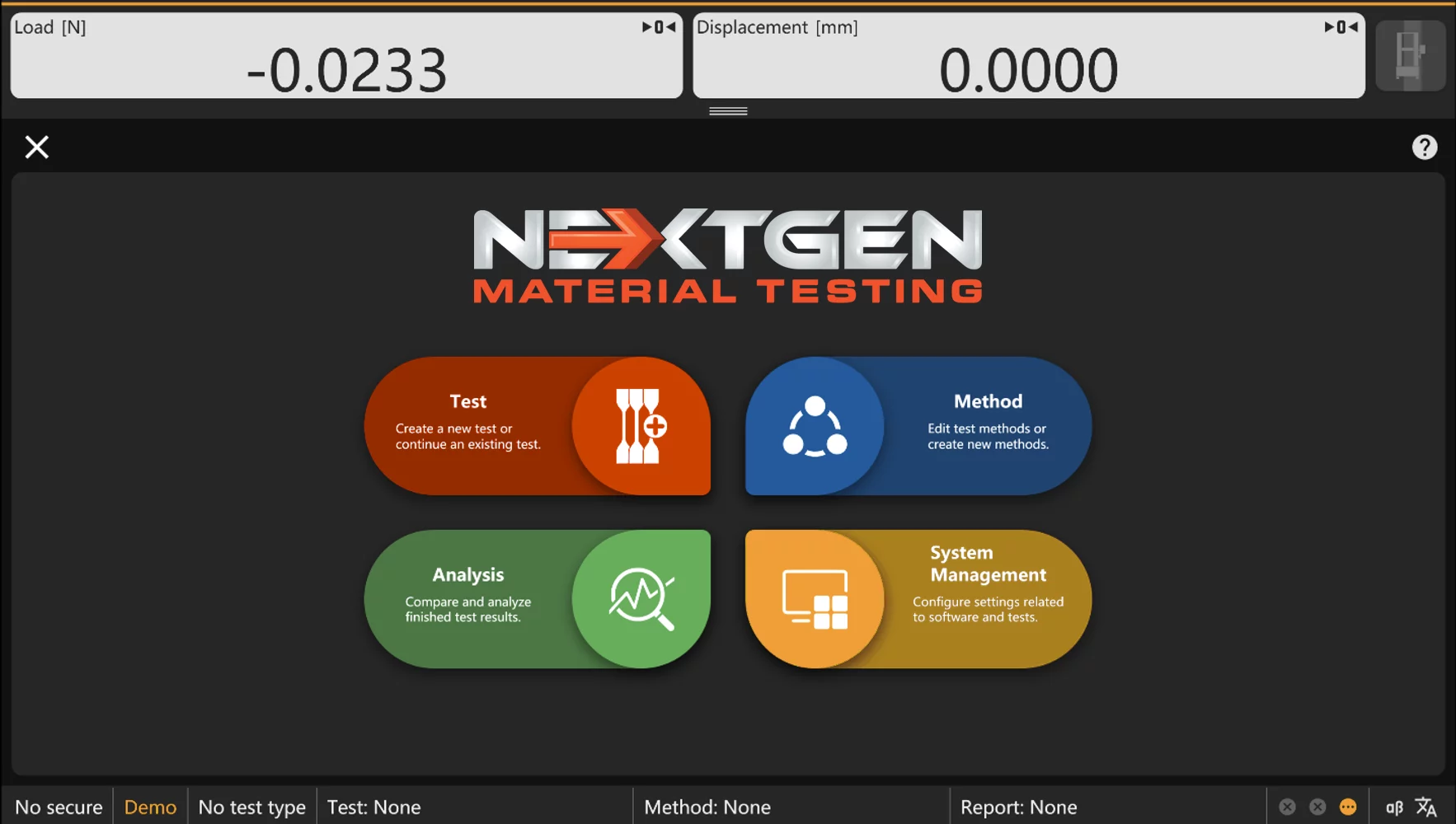
GenTest – Advanced UTM Testing Software
GenTest Software provides test control and data acquisition for universal testing machine workflows used in quality control and materials testing. It combines method templates, step-based sequencing, live curve monitoring, and built-in calculations in one environment. The software supports standards-based testing programs aligned with ASTM, ISO, DIN, EN, and BS. Results and reports remain linked to the method and specimen inputs for consistent review, auditing, and customer documentation.
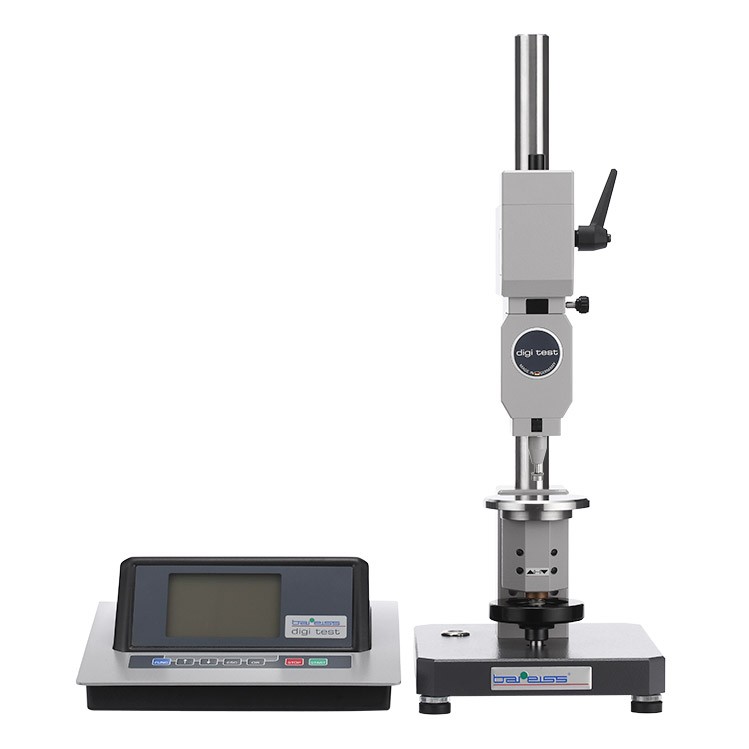
Automatic Shore, IRHD and VLRH Hardness Testing System
NextGen is proud to present our German line of fully-automatic Shore, IRHD and VLRH hardness testing system for plastic materials, plastic and foam compounds for the ultimate precision, accuracy and repeatability, exceptional ease-of-use and maintenance. Experience the industry leader for specimen testing including rubbers, plastics, foams, composites, o-rings, and more.
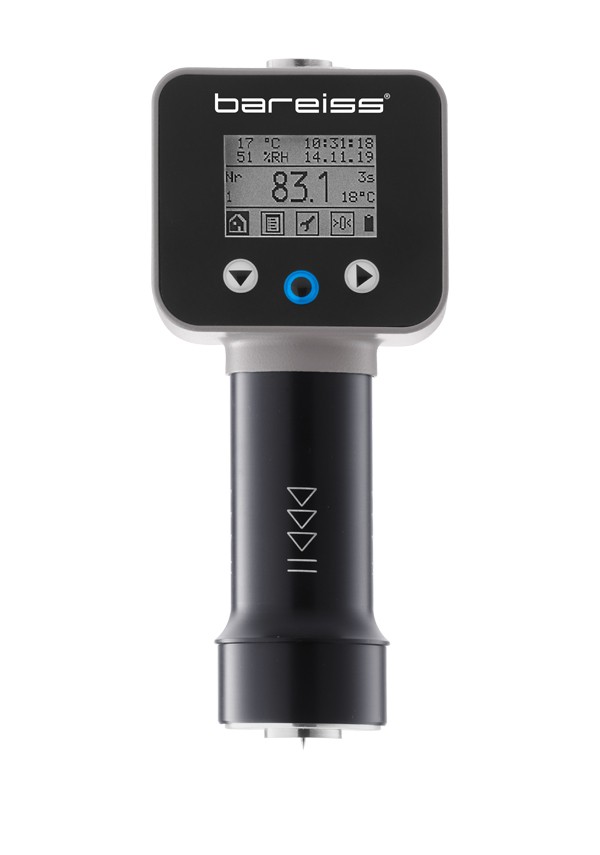
Advanced Portable Shore Durometer System with Test Stand Options
HPEIII is NextGen's advanced German line of equipment that is the new generation of HPE systems ideal for various plastic and plastic compound testing. The new system enhancements offer advantages including temperature sensor, reading values of ambient temperature and humidity, historical hardness value display, larger LCD display, standard USB connection and much more. These advanced portable systems can be paired up with either manual or automatic motorized test stands to help eliminate the human error factor and maximize accuracy and repeatability between test when switching from one operator to the next.
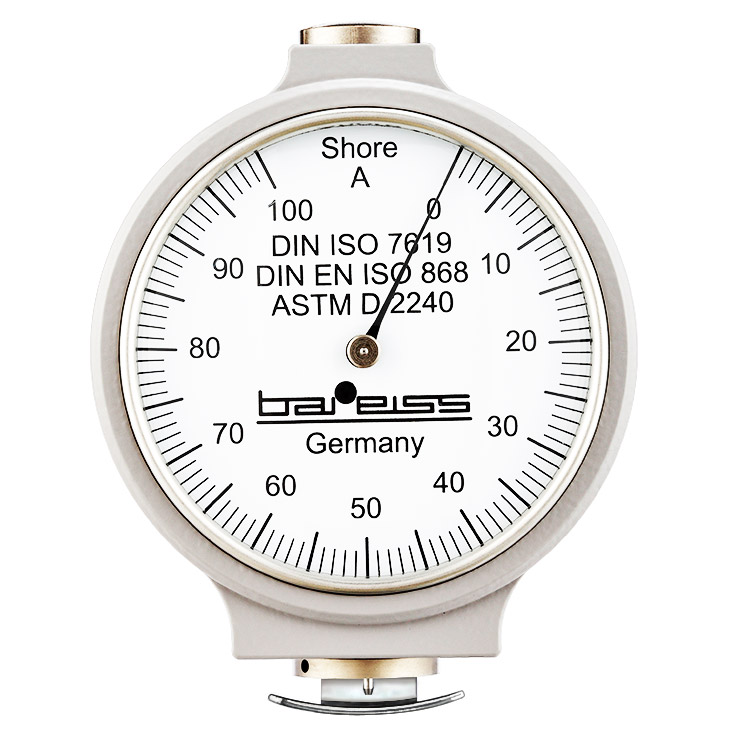
Classic Analogue Shore Durometer with Test Stand Options
This German-manufactured system has been the global benchmark of Shore hardness testing systems since 1954. With ever enhanced ergonomic design, the HP Shore Hardness Tester is both visually appealing and precise rubber and plastic testing system as it has been for nearly 50 years.
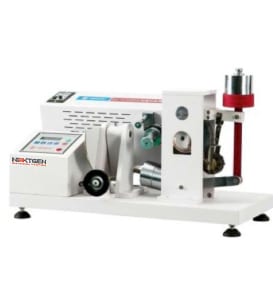
Akron Abrasion Tester
GenKron is used together with a special balance for testing the abrasive consumption of materials. The measurements are done through volumetric loss of a rotating specimen exposed to the action of a standard grinding wheel. It is especially suited for testing harder materials such as shoe soles, tires and other rubber materials.
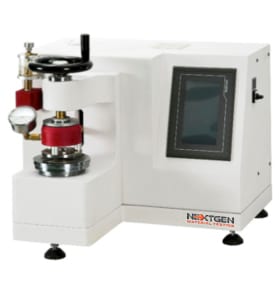
Burst Strength Tester for Fabric
GenBurst is the Burst Strength Tester designed to test anti-rupture strength of variety of materials such as leather, paper and fabric.
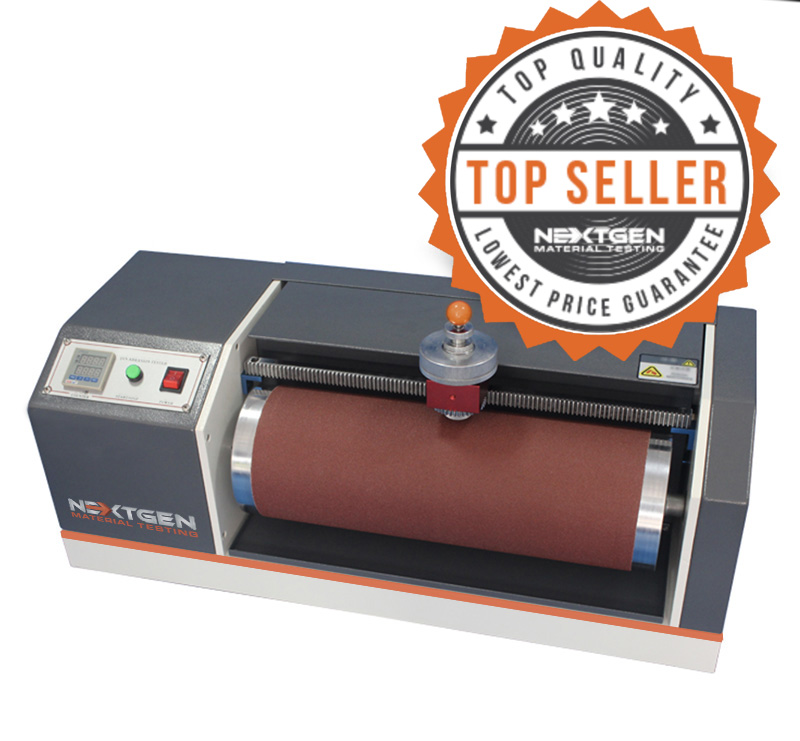
DIN Abrasion Tester
GenDin, is designed to conform to the ASTM D5963 and IS0 4649 standards. This top quality and highly popular abrasion tester will allow you to measure the abrasion resistance of rubbers (vulcanized thermo set rubbers and thermoplastic elastomers) that are subject to abrasive/frictional wear on their actual service. Since wear is always a result of abrasion, different test methods have been developed for the simulation of long term wear.
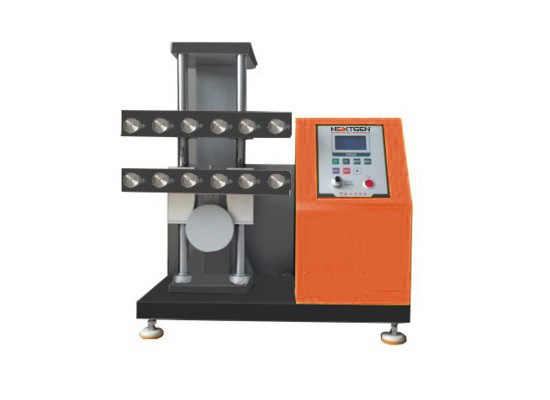
Demattia Flex Cracking Tester
GenFlex tests the ability of rubber products to withstand repeated flexing without developing cracks is of prime importance where such products are used in conditions undergoing repeated flexing. Flexing endurance of rubber products is determined by simulating in laboratory the action of flexing repeatedly under standard conditions of speed, mode, and degree of flexing.
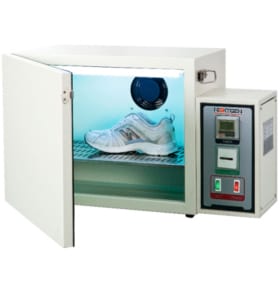
Discoloration Meter
The machine is used to simulate an environment of sunlight radiation on a specimen to identify the resistance of fabric to discoloration.
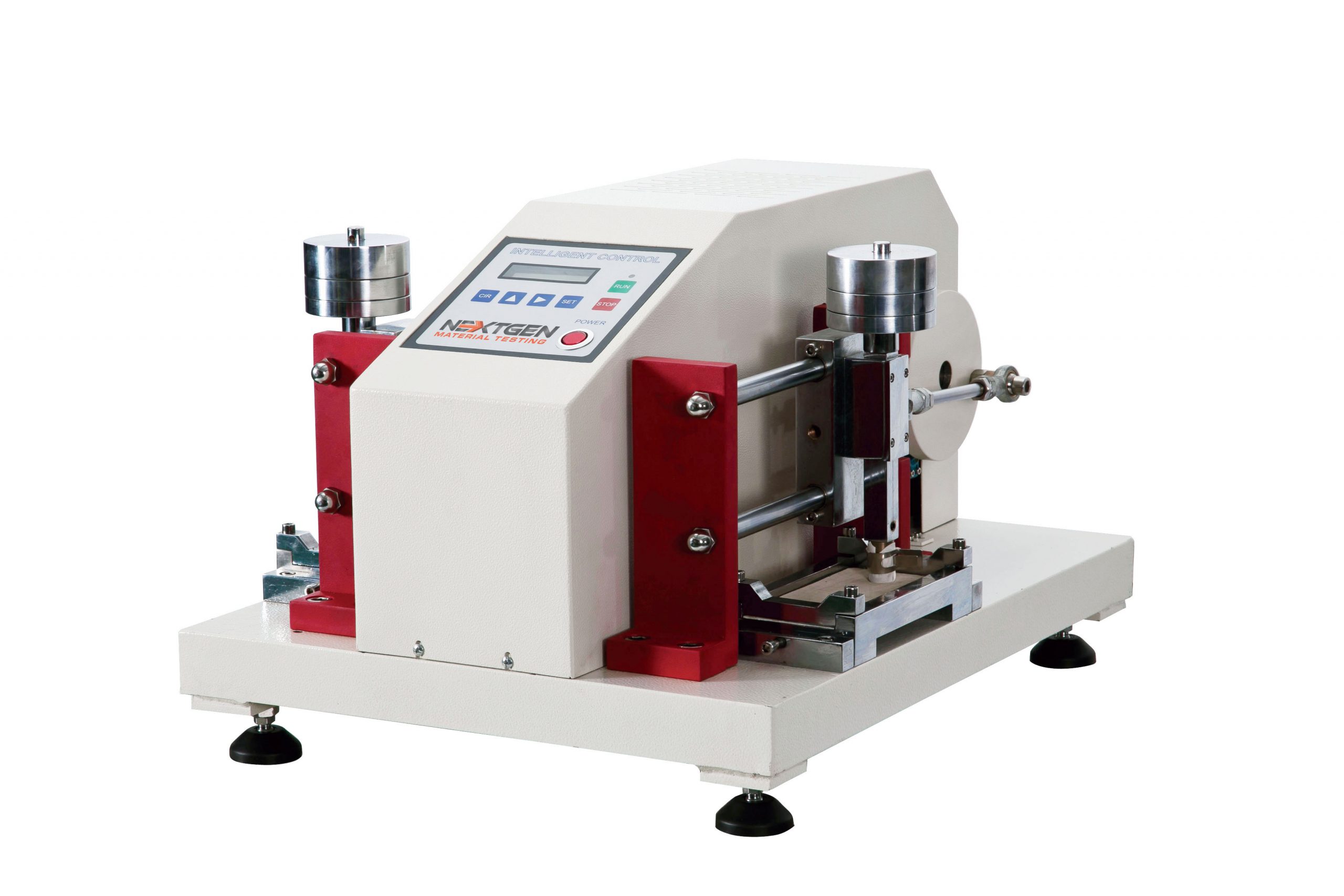
Electric Crocking Tester - GenCrock
The machine is used to test the dyeing of the fabric, and the fade degree of the leather after dry or wet rubbing. The test method involves the specimen to be fastened to the base of the crocking meter and rubbed with an abrasive hammer attached to a wet or a dry cloth under controlled conditions. The transfer of colour is then measured using a scale to evaluate the rating of the specimen's dyeing grade.
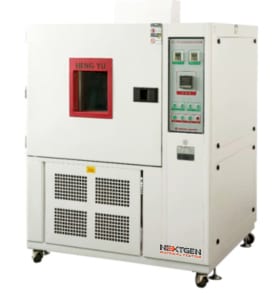
Freezing Tester - GenFreeze
GenFreeze is specially designed to test the characteristics of various materials in a cold environment to ensure suitability for use in a cold climate. Based on the testing demand, adjust the beater and flexing grip, then load to the desired position. It can be used to test rubbers, leather, and plastics, PU leather etc. The unit can be adjusted to meet different requirements.
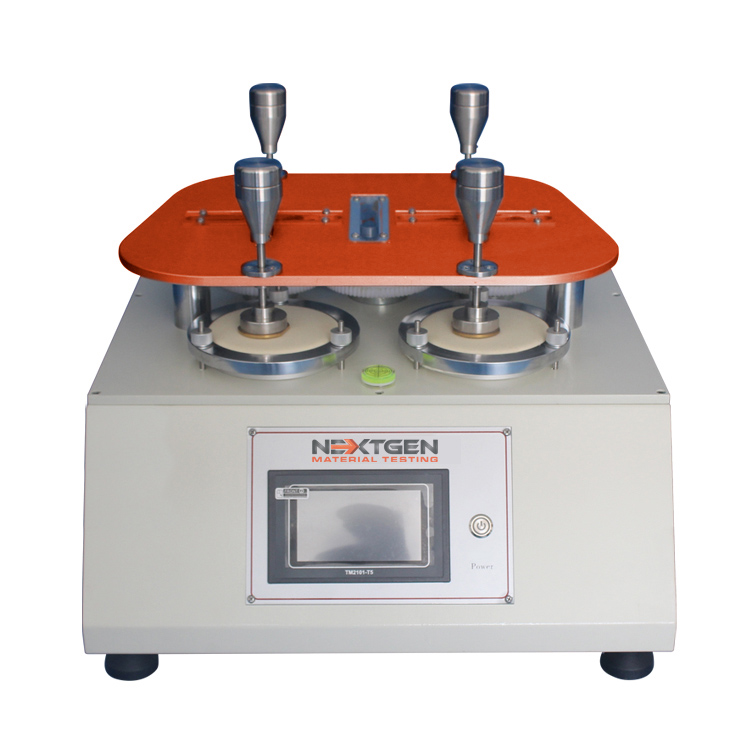
Martindale Abrasion Tester - GenDale
GenDale is mainly used to test shoe fabric, shoe lining, and many other types of shoe related materials. The unit can test up to four specimens at the same time for abrasion. The fabric specimen is measured by having rubbing applied on it via a complex direction of back and forth motion. The accuracy of abrasion strength is determined by the specific number of cycles conducted until a hole appears in the test area of the fabric specimen.
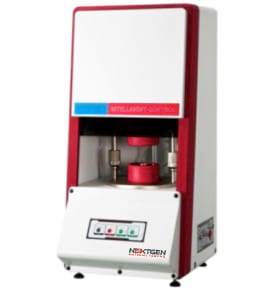
Mooney Viscosity Testing Machine - GenMooney
GenMooney is a viscosity testing machine is applied to measure the viscosity of the unmixed or mixed unvulcanized natural rubber, synthetic rubber and regenerated rubber .This tester has many functions such as fast warming, maintaining temperature, data stability, etc. It is equipped with an automated calibration feature for a simple data calibration of each experiment.
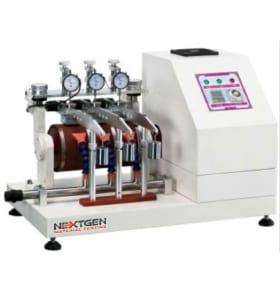
NBS Rubber Abrasion Tester - GenNBS
GenNBS is used to test the abrasion resistance of vulcanized rubber or other rubber compounds. It is commonly used for the soles and heels of footwear. It has an intelligent power failure recovery system. The unit conducts measurements through volumetric loss of specimens exposed to the action of a normalized abrasive medium secured to a rotations cylinder.
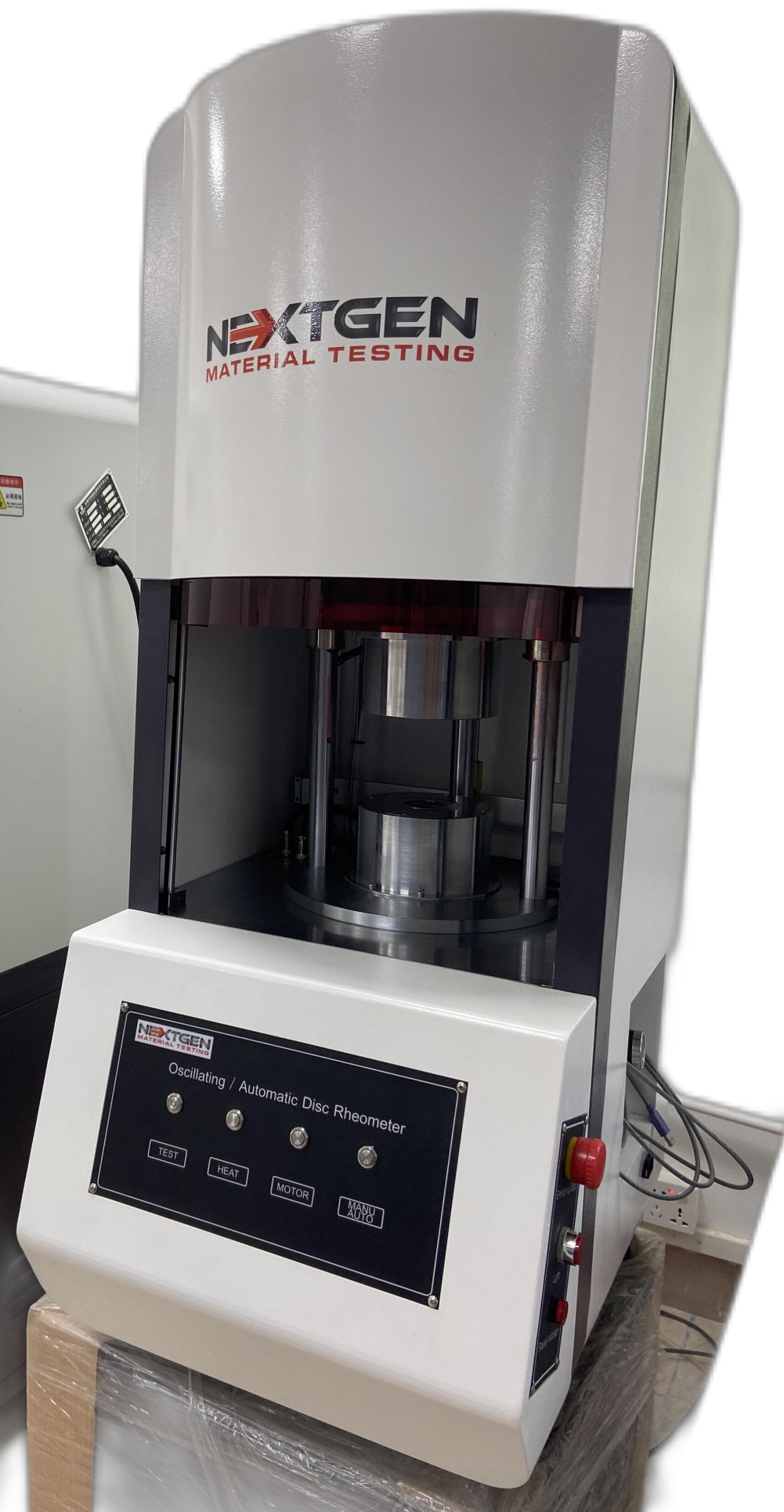
Oscillating / Automatic Disc Rheometer (ODR)
This machine is designed to get the characteristic curve and characteristic parameters of rubber vulcanization by measuring the applied moment of rubber to the oscillating dye body. NG-ODR rotor-free vulcameter has an excellent stability of results. The data and diagrams can be used as a reference for development, research and production quality.
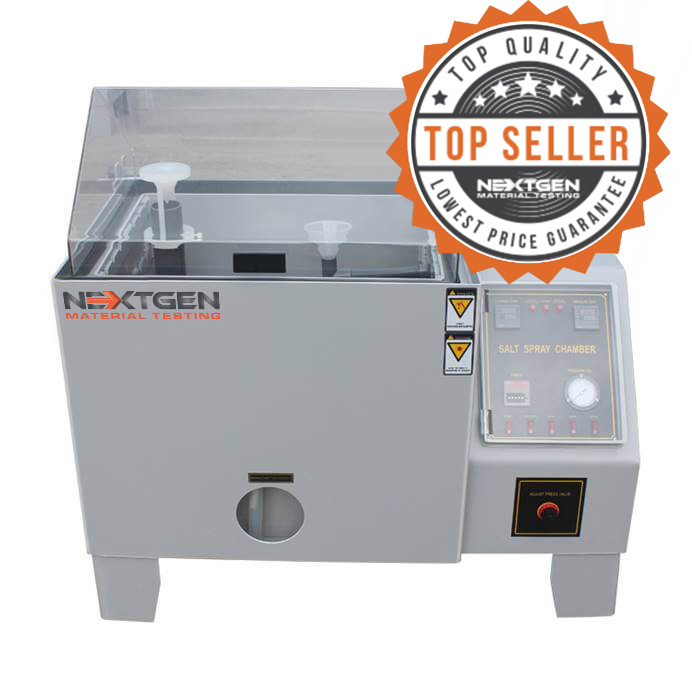
Salt Spray Tester - GenSalt
GenSalt is designed to test the surface of different materials for resistance to corrosion. The unit is commonly used to test coated materials of a metallic nature in a controlled corrosive environment. The test can be used on rust-proof painting, anodizing, electroplating and rust-proof of grease. The machine imitates expedited corrosion process via salt spraying on a given test sample to identify the corrosion (oxides) resistance. Test results are based on the longevity of time a material can resist visible corrosion on the test sample.

Vertical Rebound Resilience Tester - GenRebound
GenRebound tests the resilience of rubber compounds. The machine must be adjusted in a horizontal position and the plunger raised at a specific height. The plunger is then released onto the specimen for a given number of impacts. The measurements are based on the 4th, 5th, and 6th impacts. The average of the three (3) measurements is then calculated for the test result. The machine is highly useful in production of compounds designed to absorb vibration or shock according to the ASTM standards.
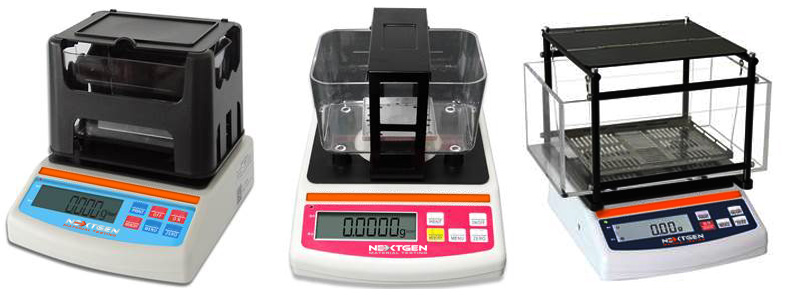
Digital Densimeter Systems
Description The NG-DM-A Series offers high-accuracy digital Densimeters designed for a wide variety of material testing needs. These elegant and compact densimeter systems offer capacity ranges from 150g to 3000g with accuracy of 0.001g/cm3 down to 0.0002g/cm3. Advanced Densimeter System […]
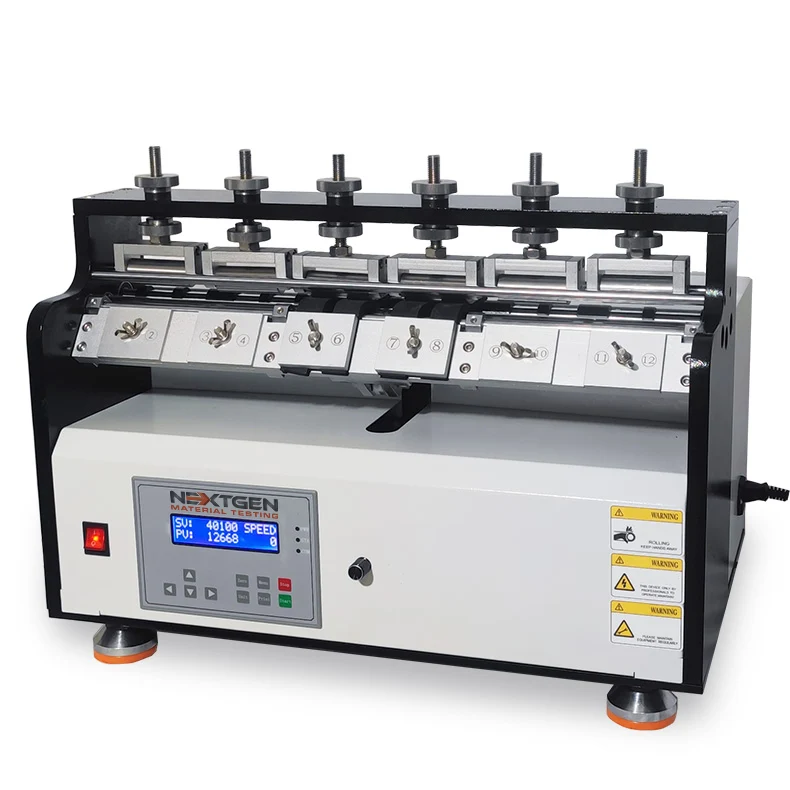
Ross Flex Tester
Ross Flex Tester is designed to determine the resistance of vulcanized or synthetic elastomers to cut growth. The system does so under continuously bend flexing in 90°.
